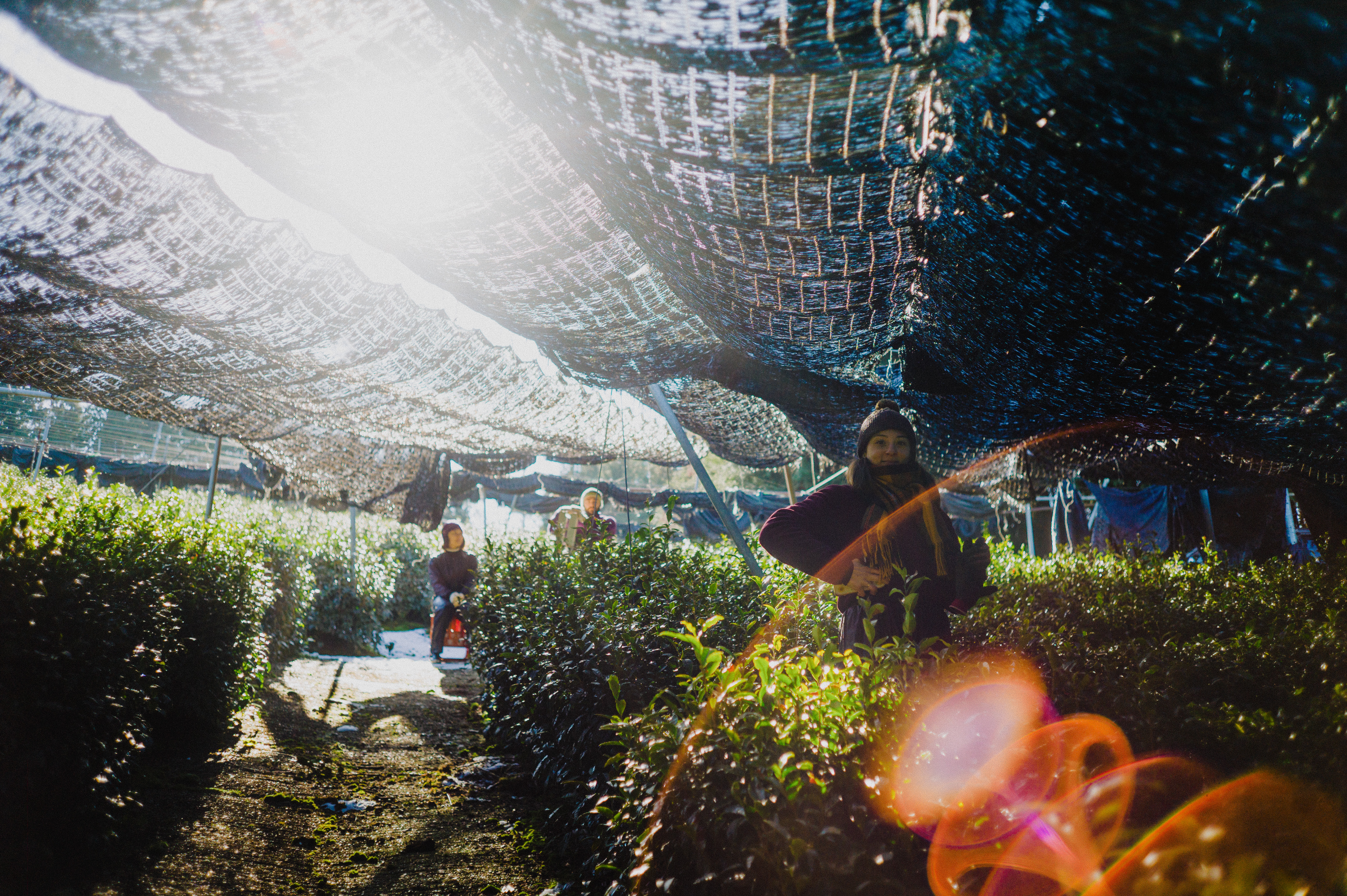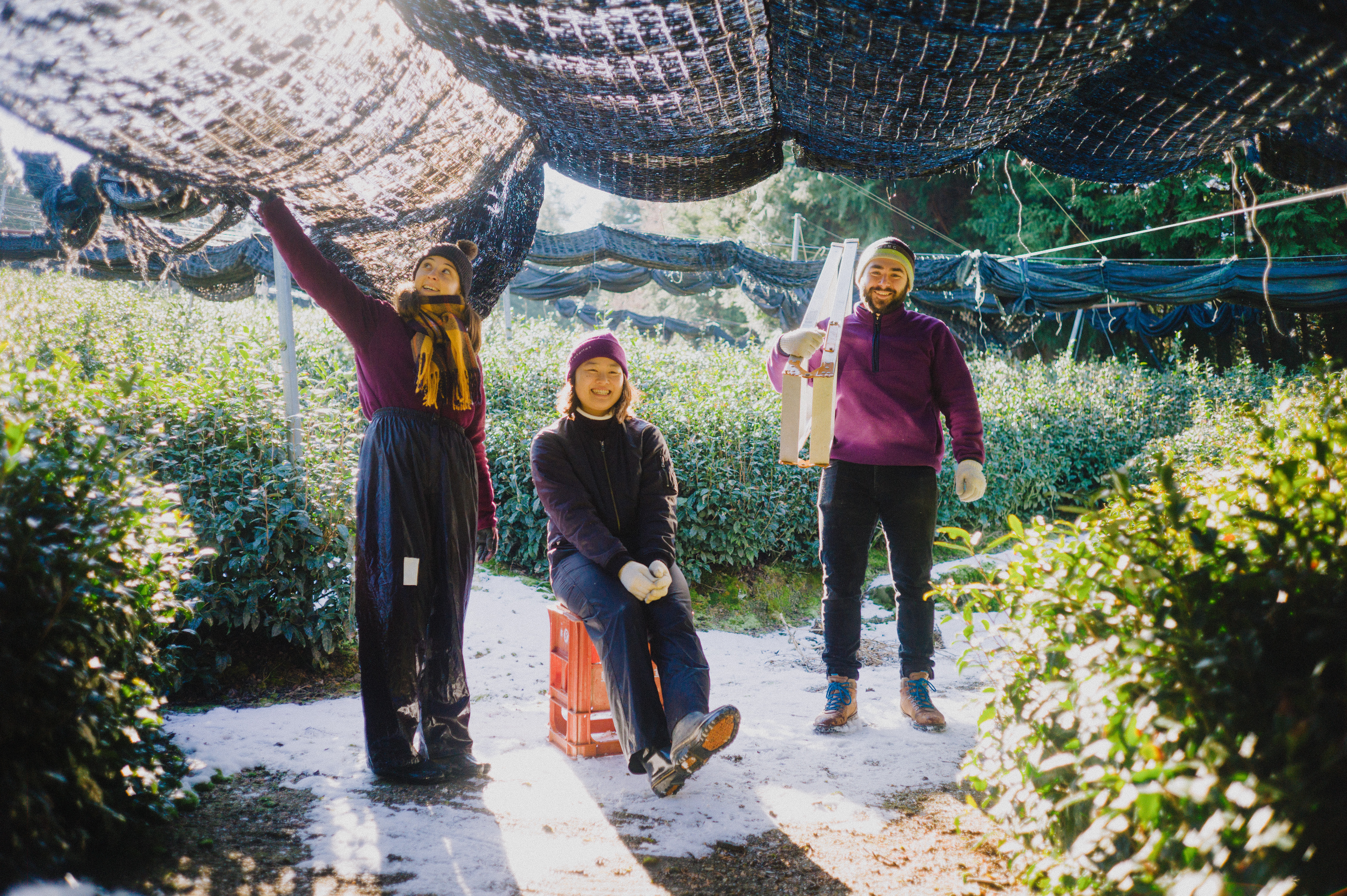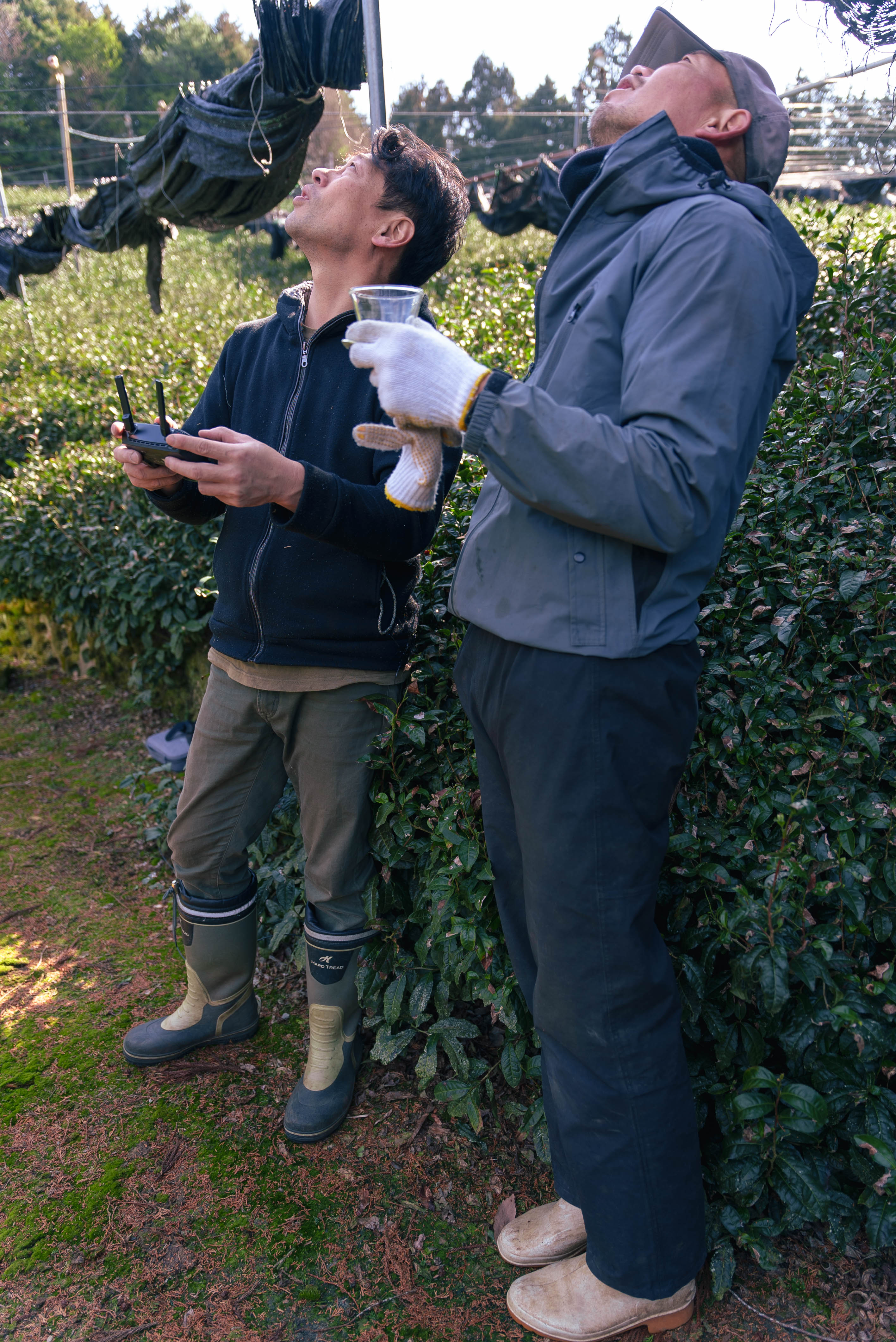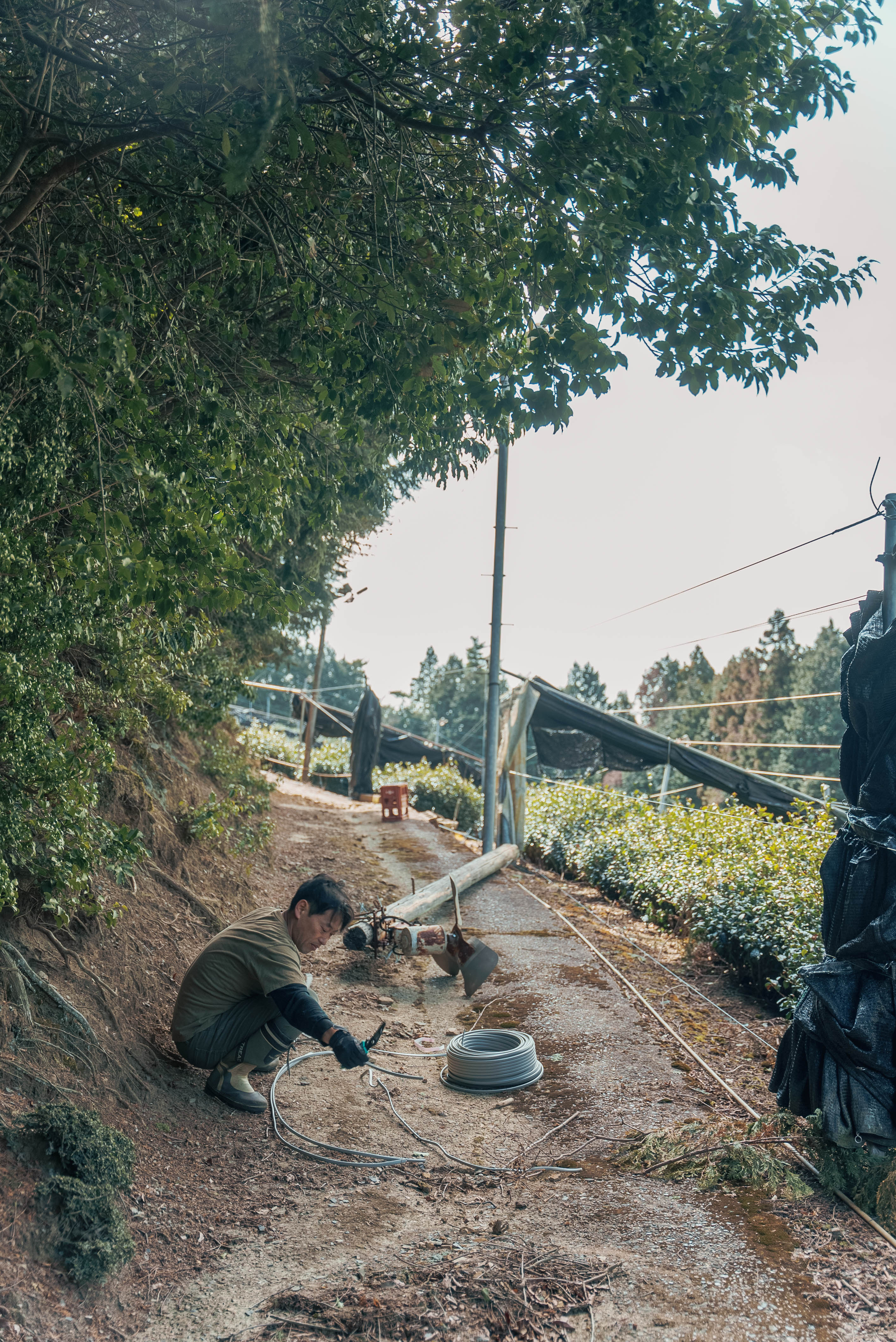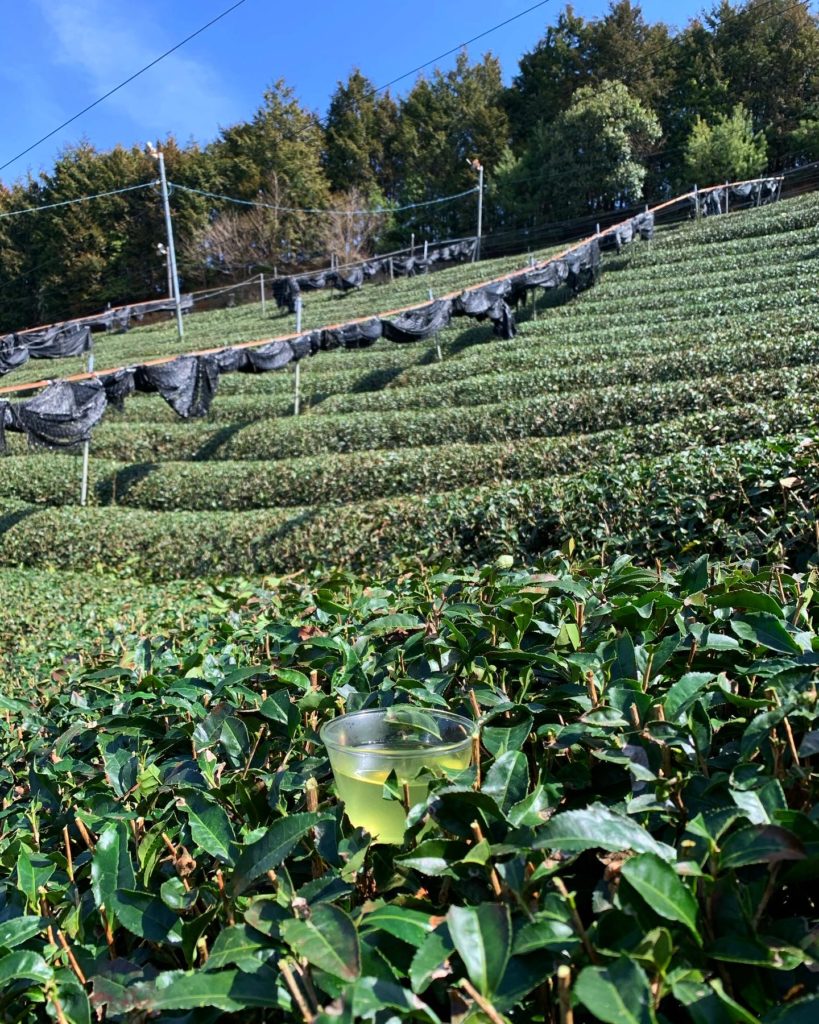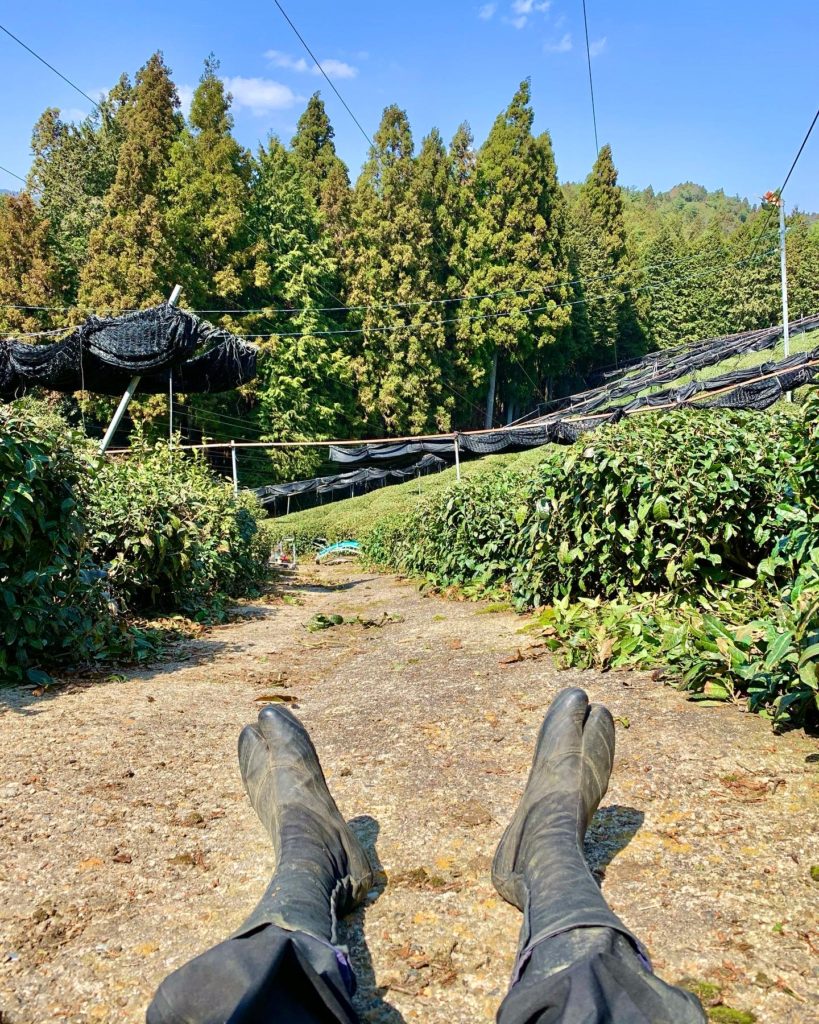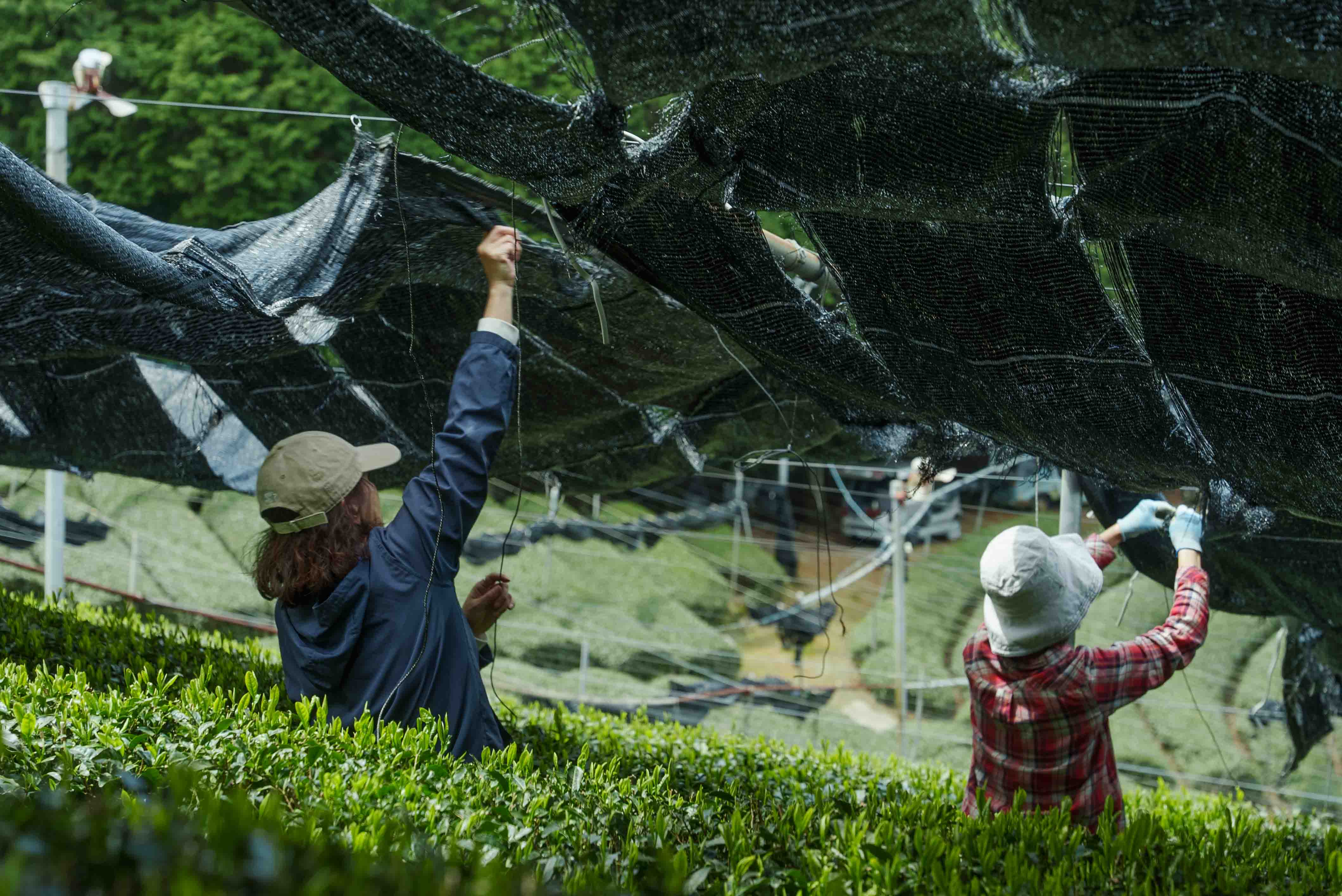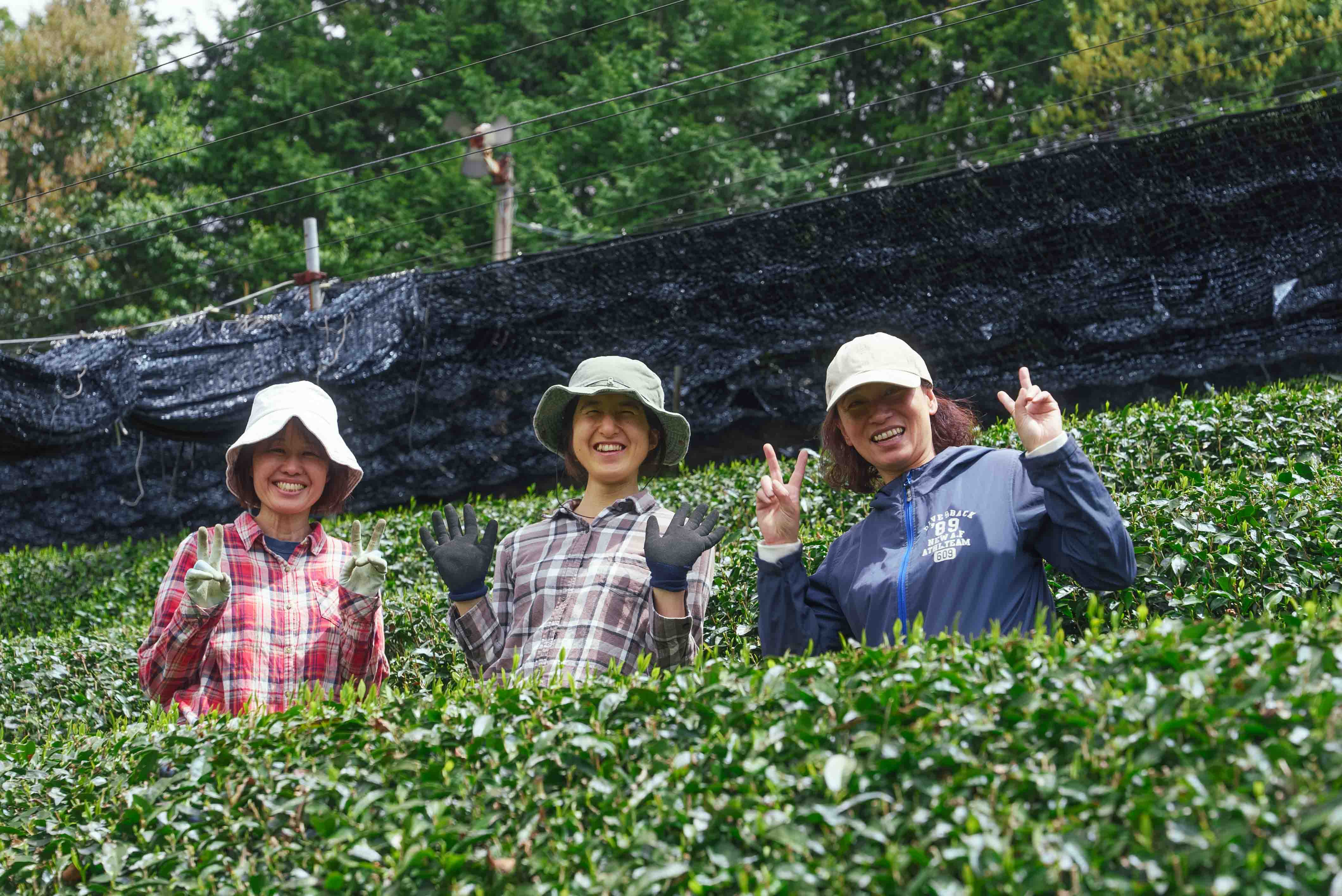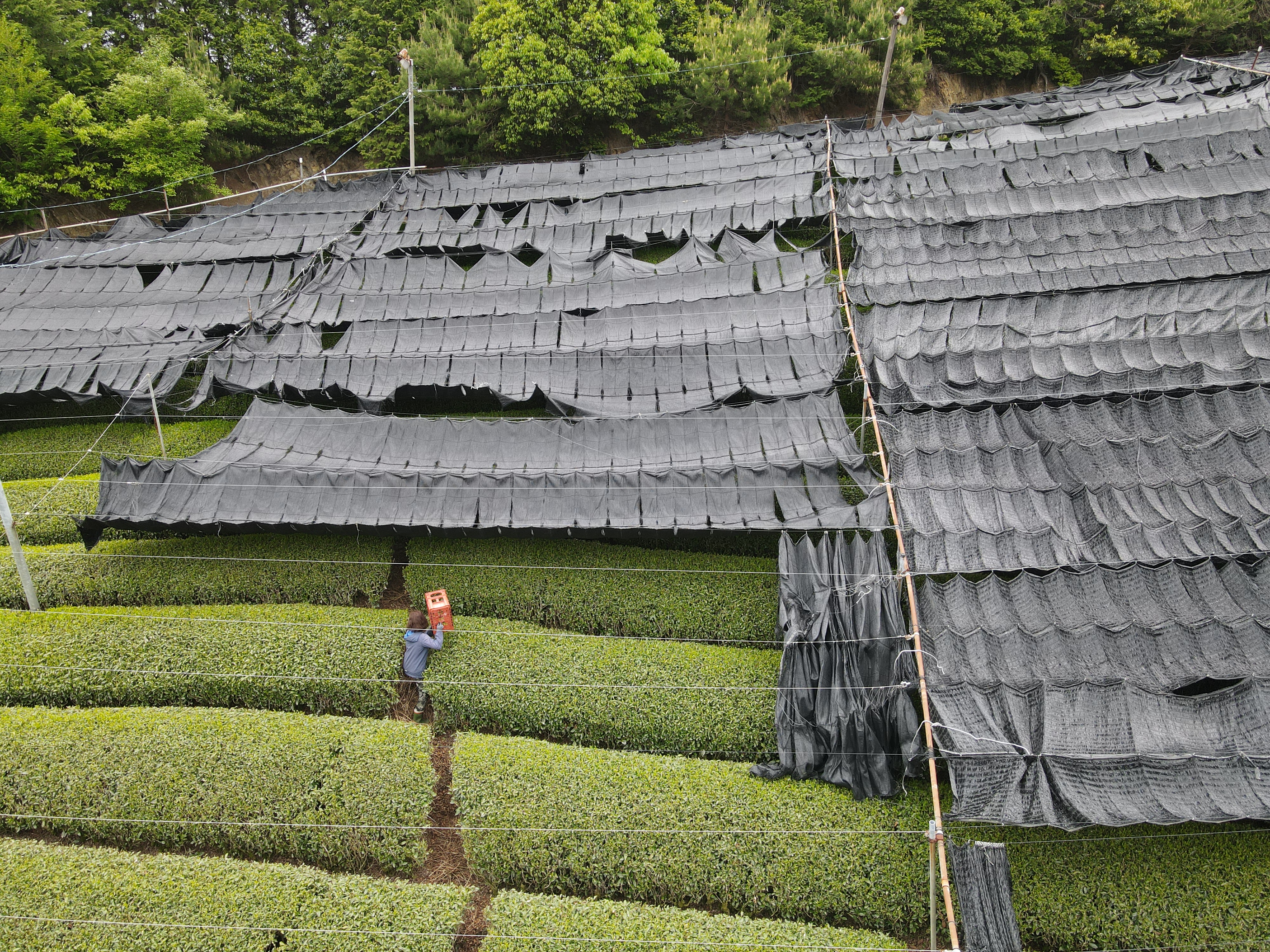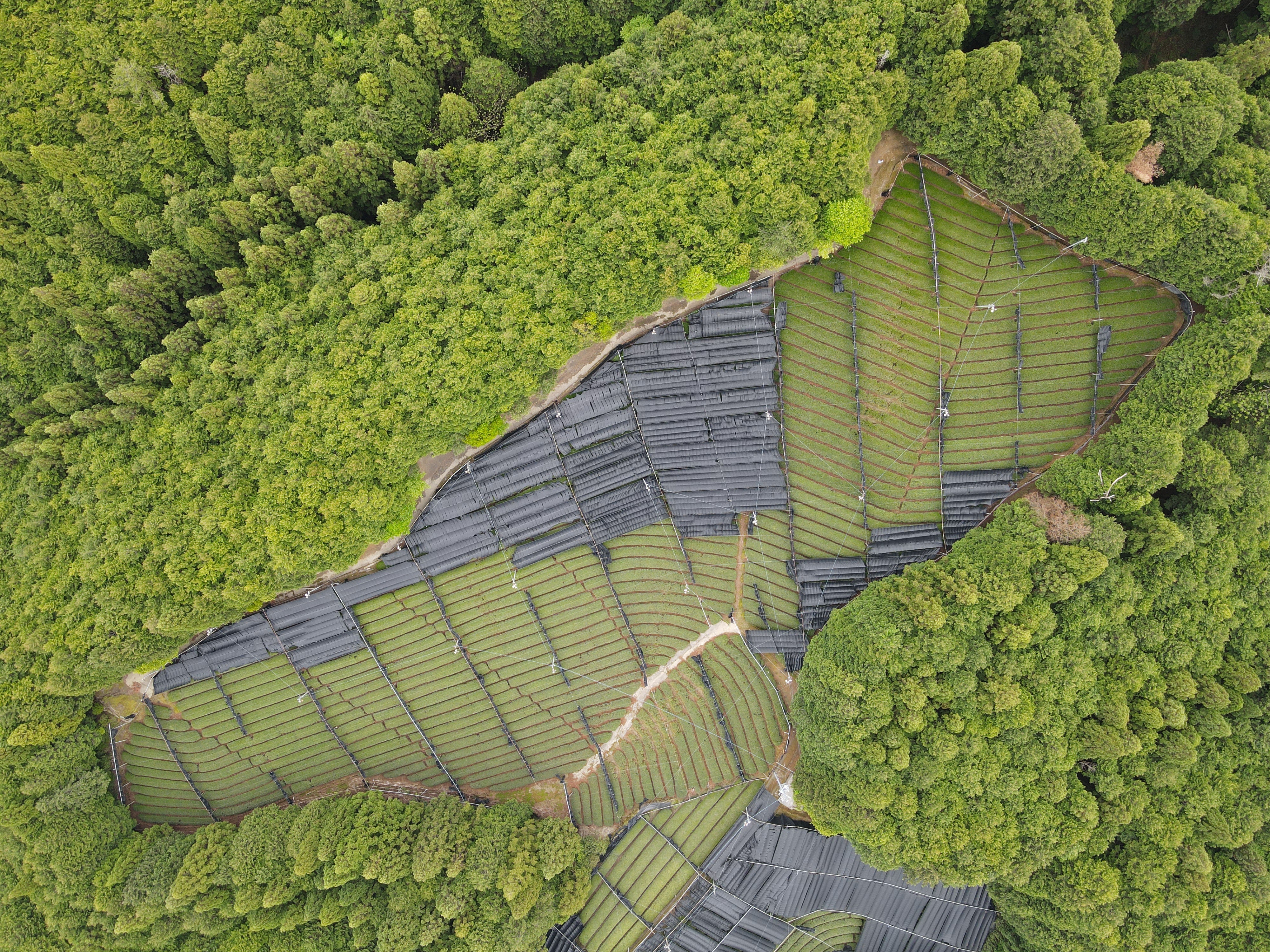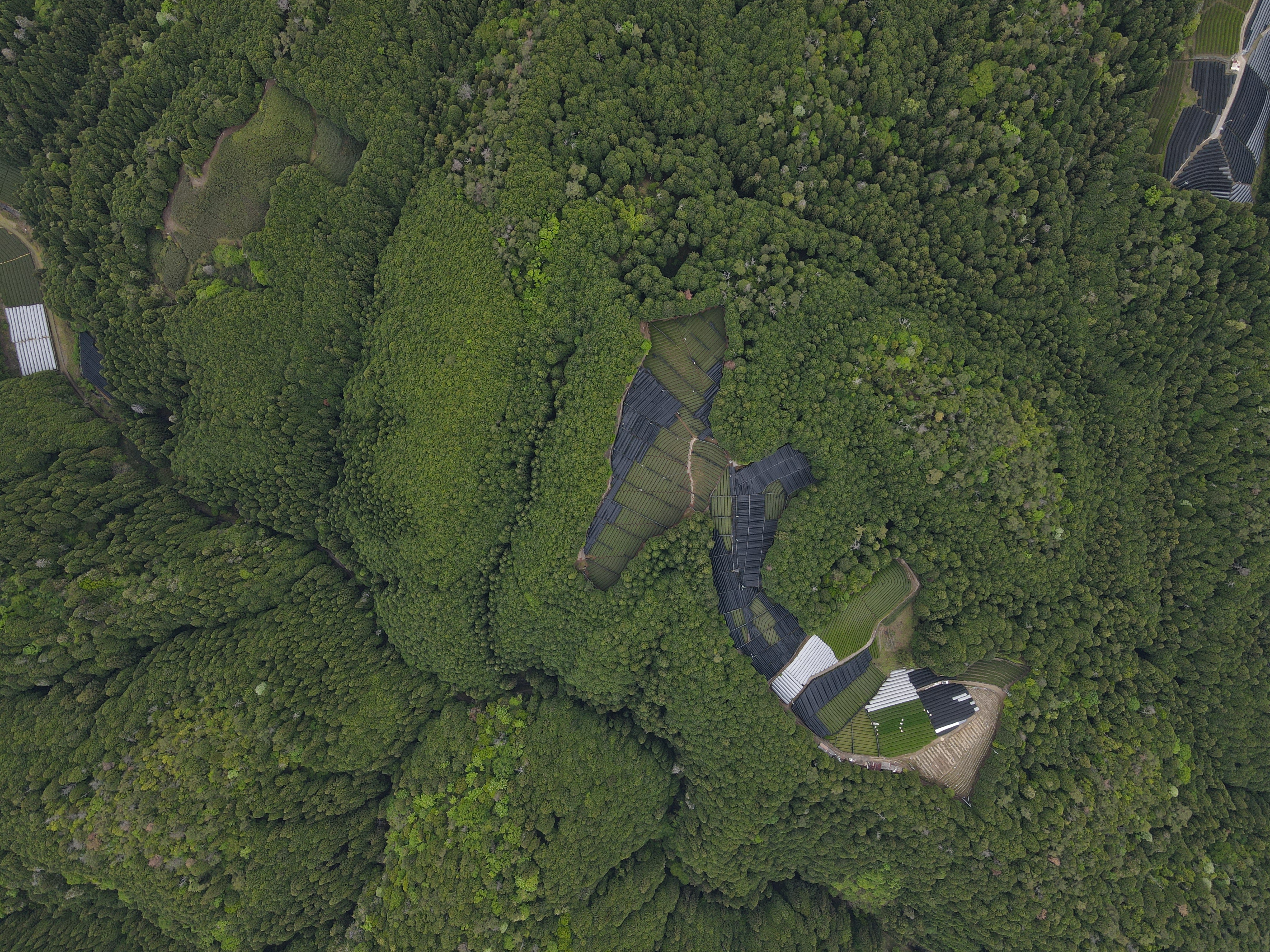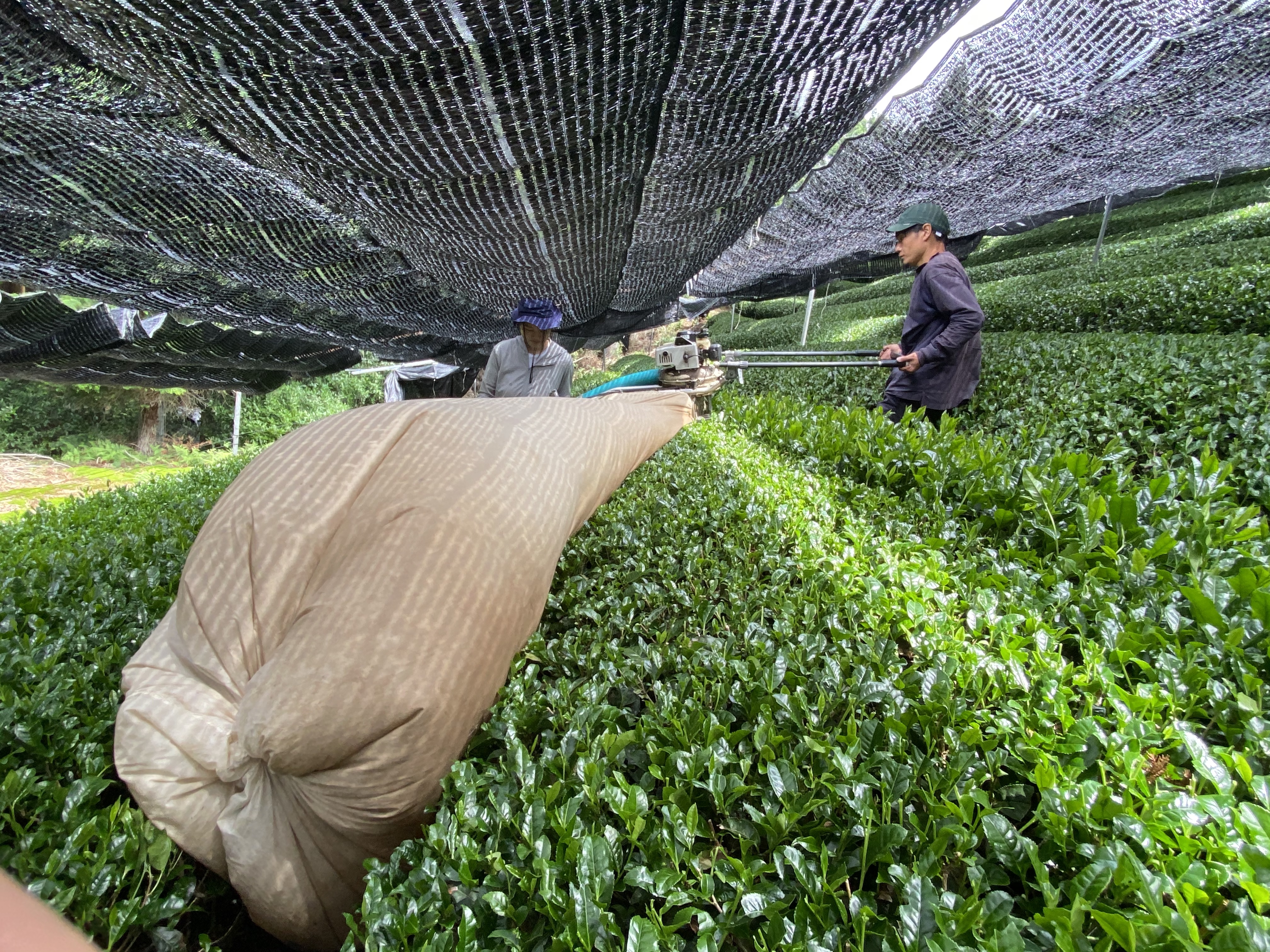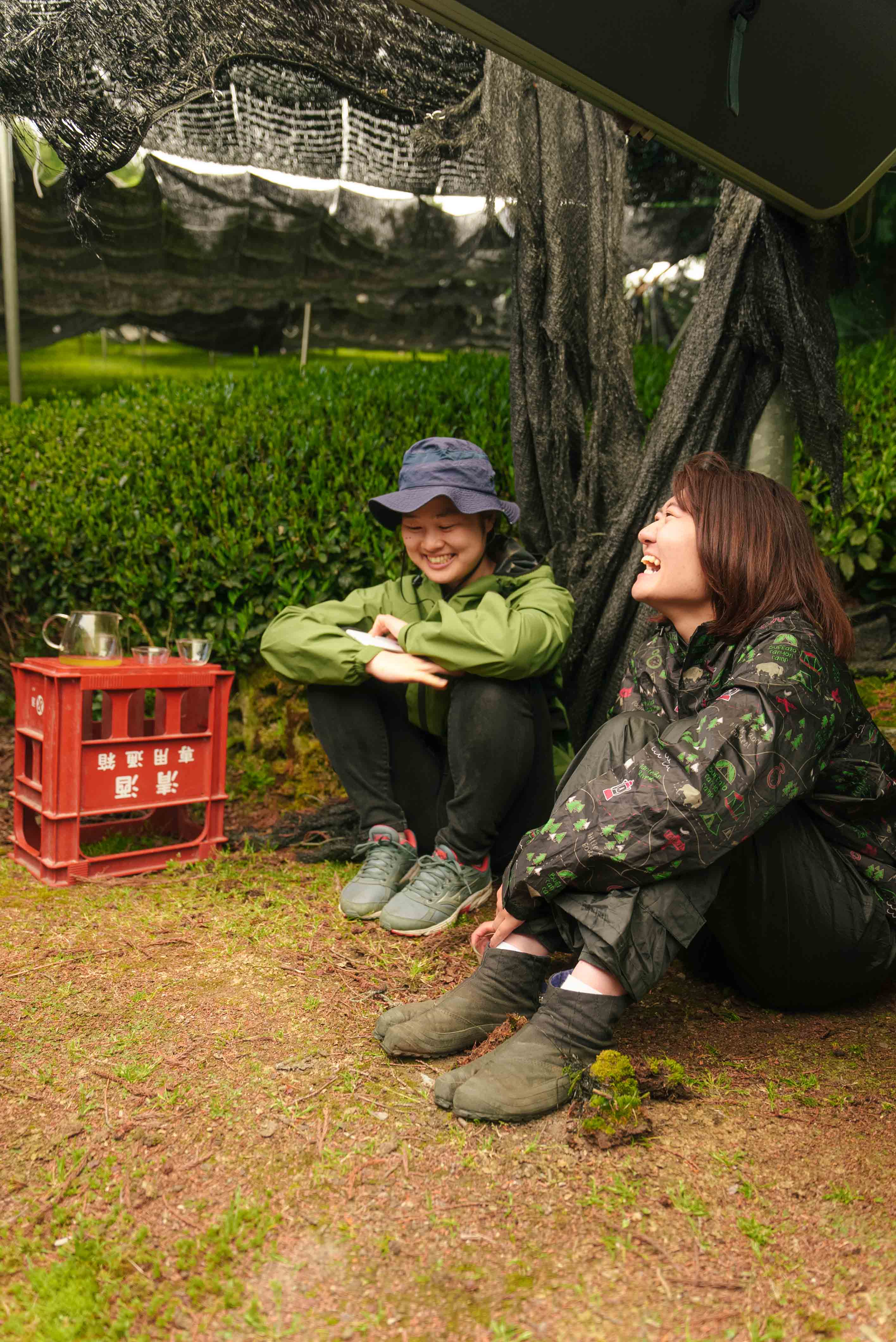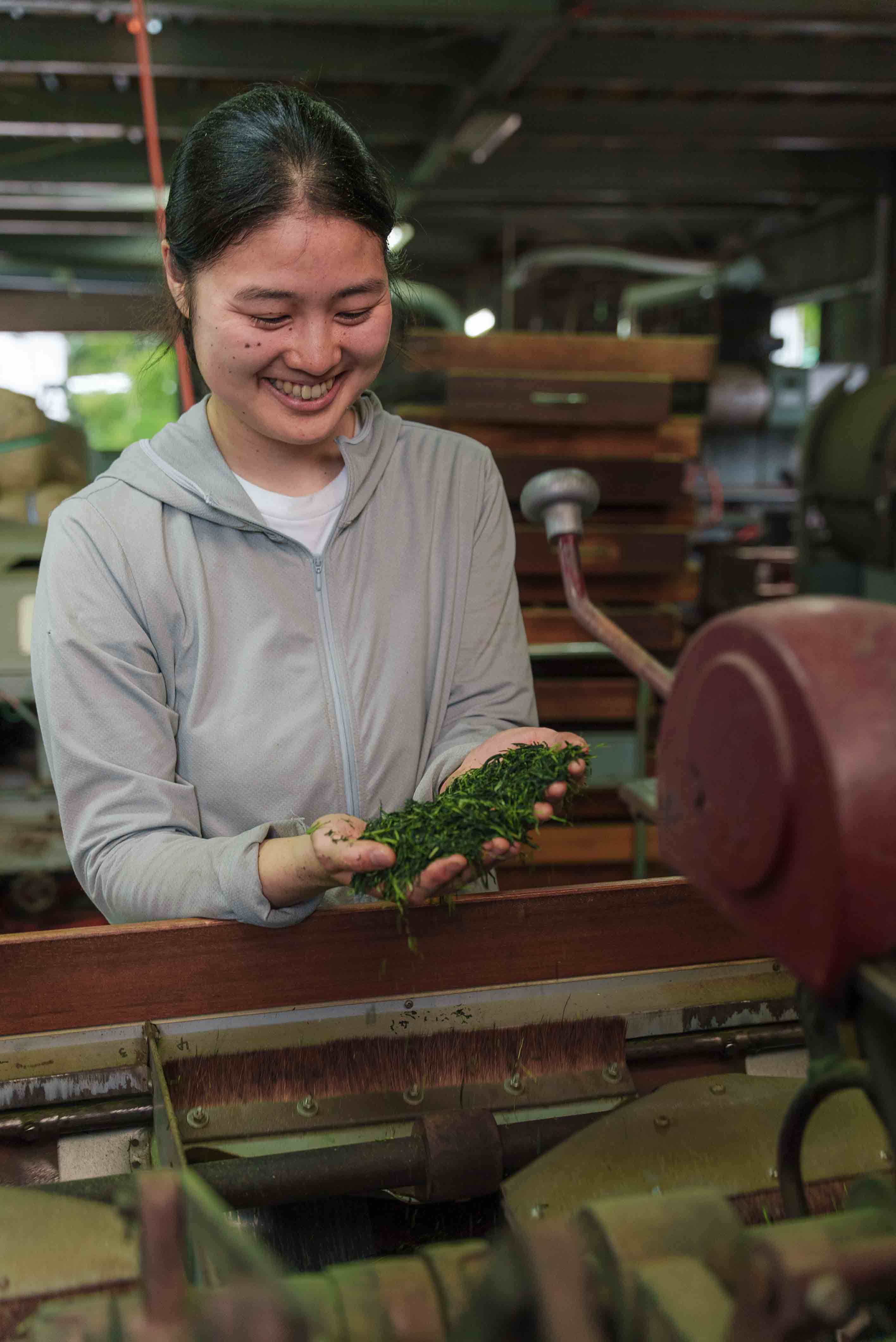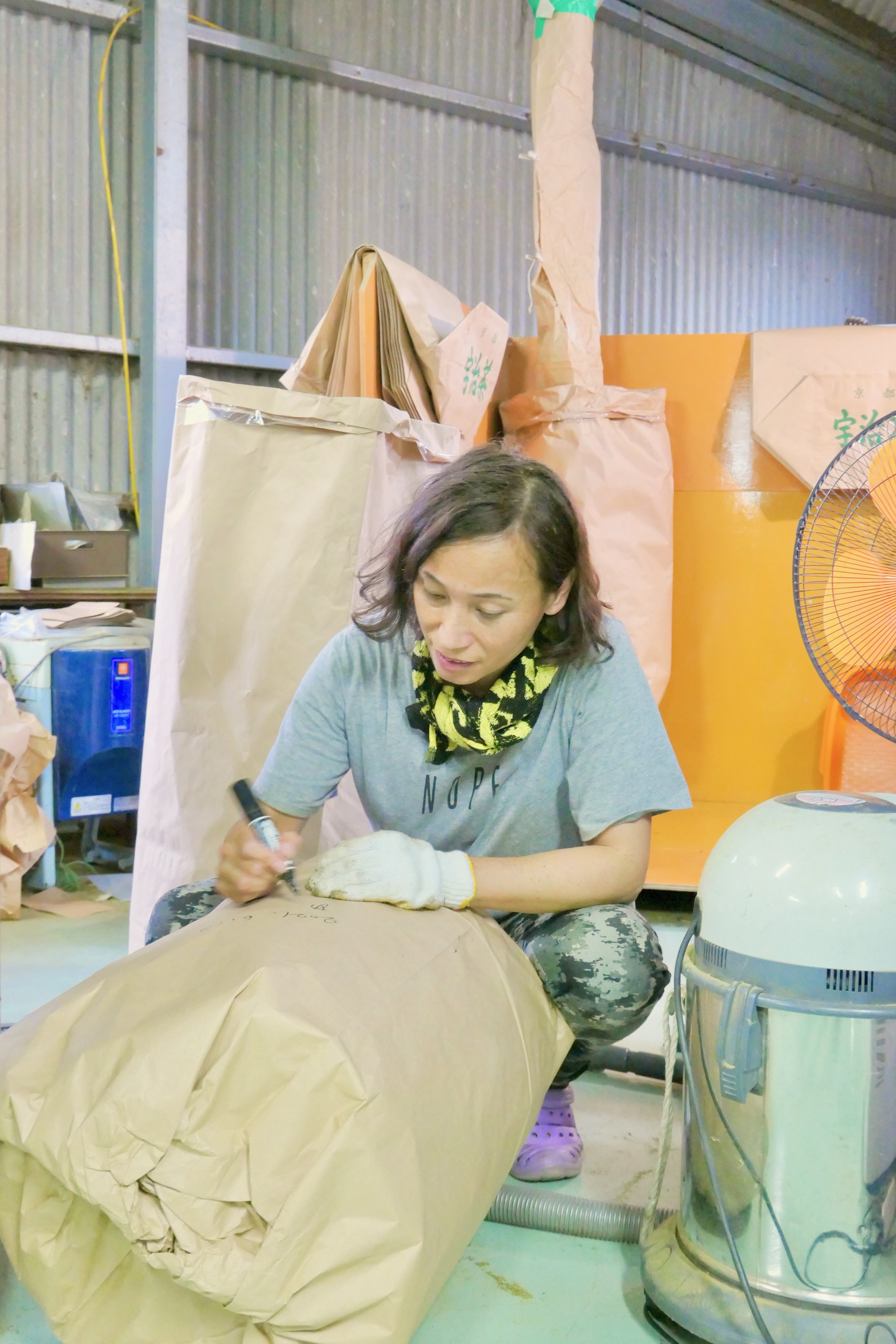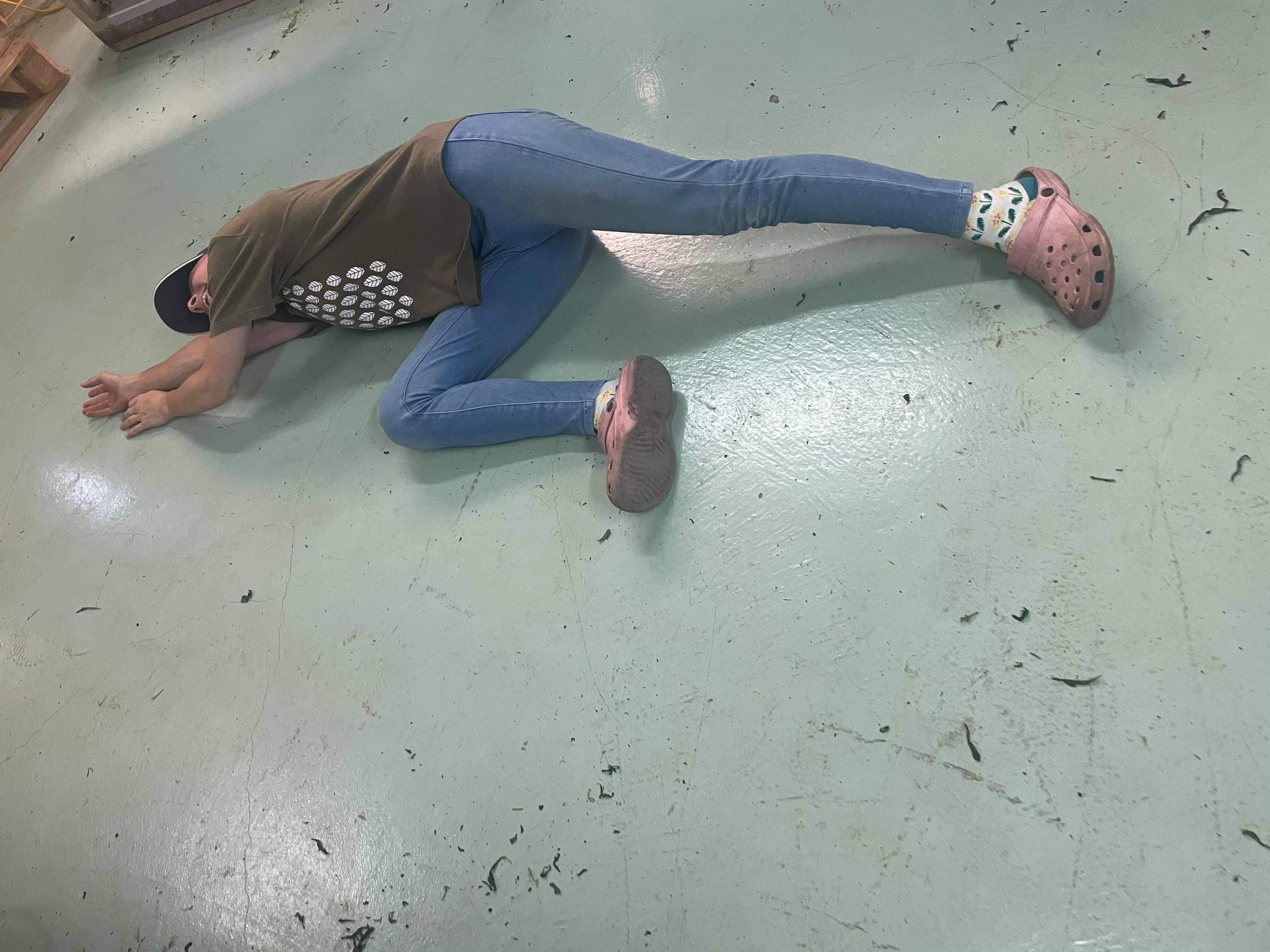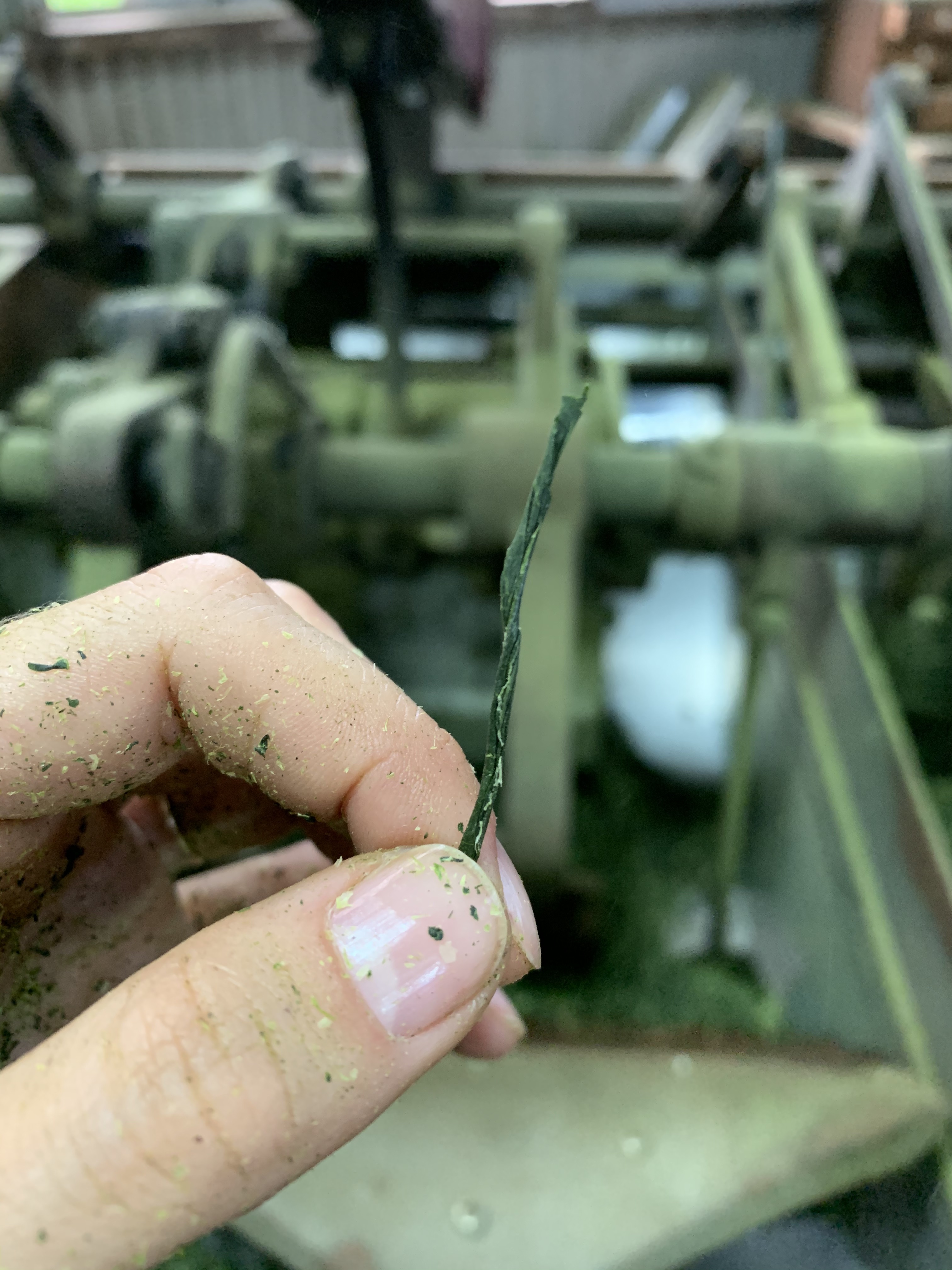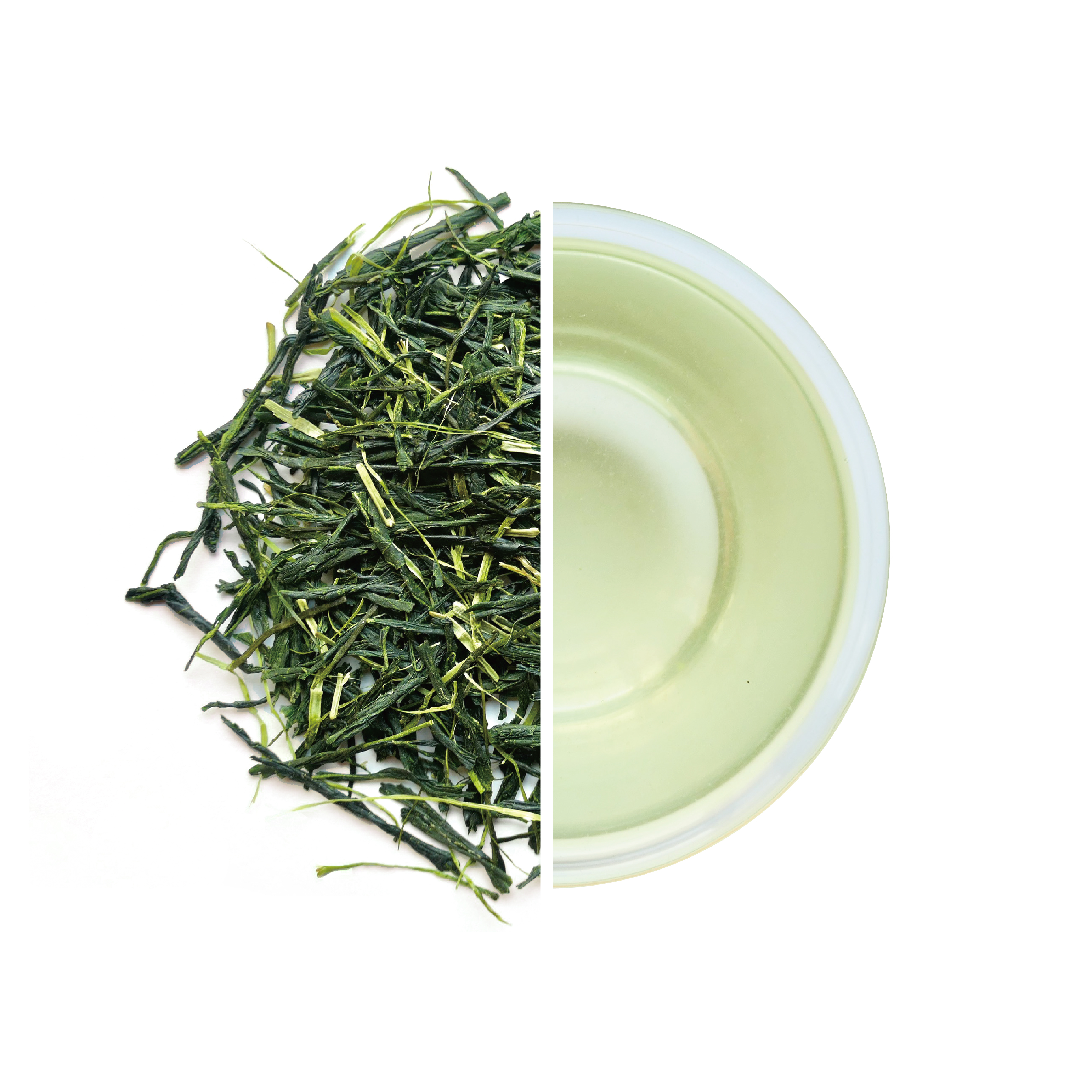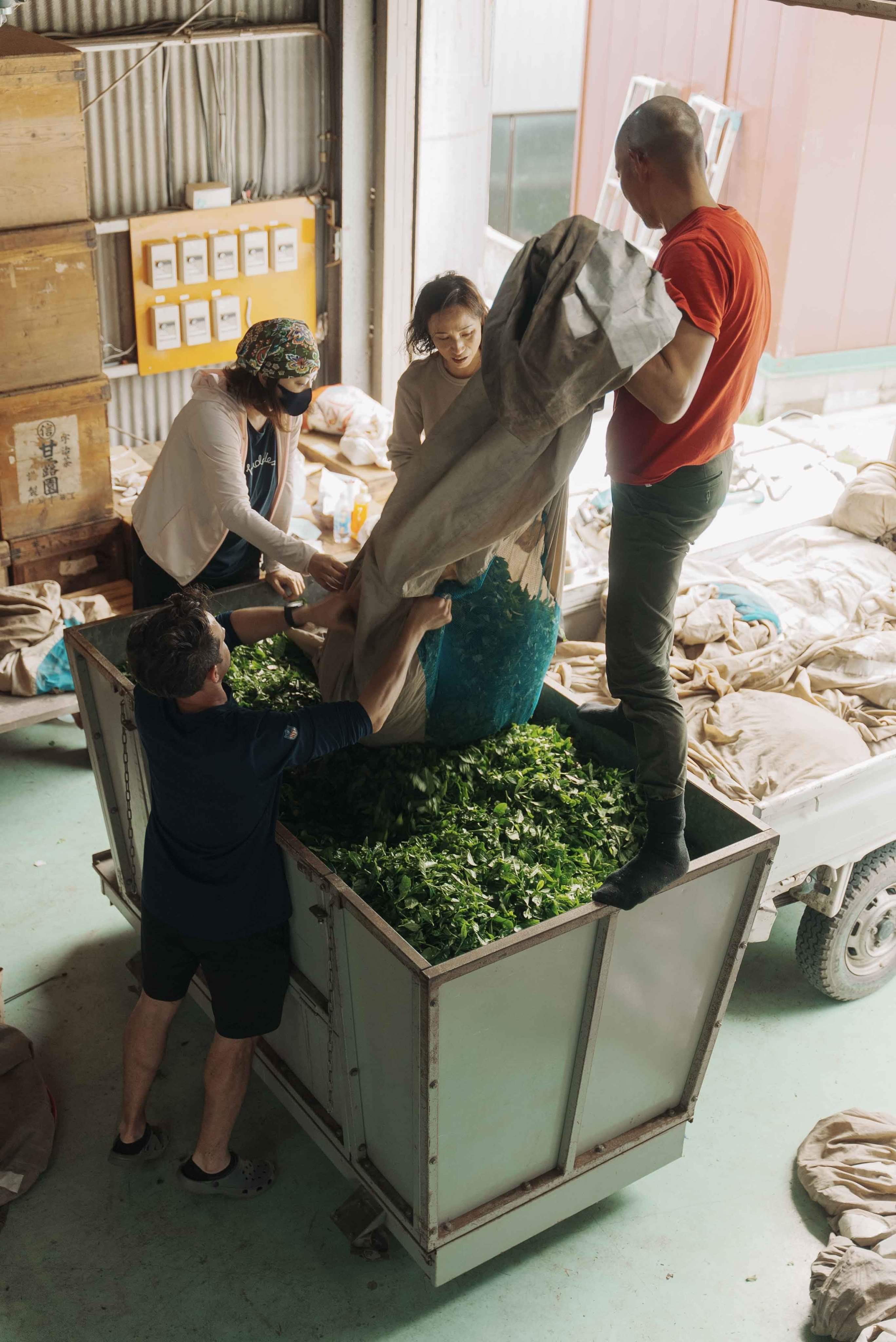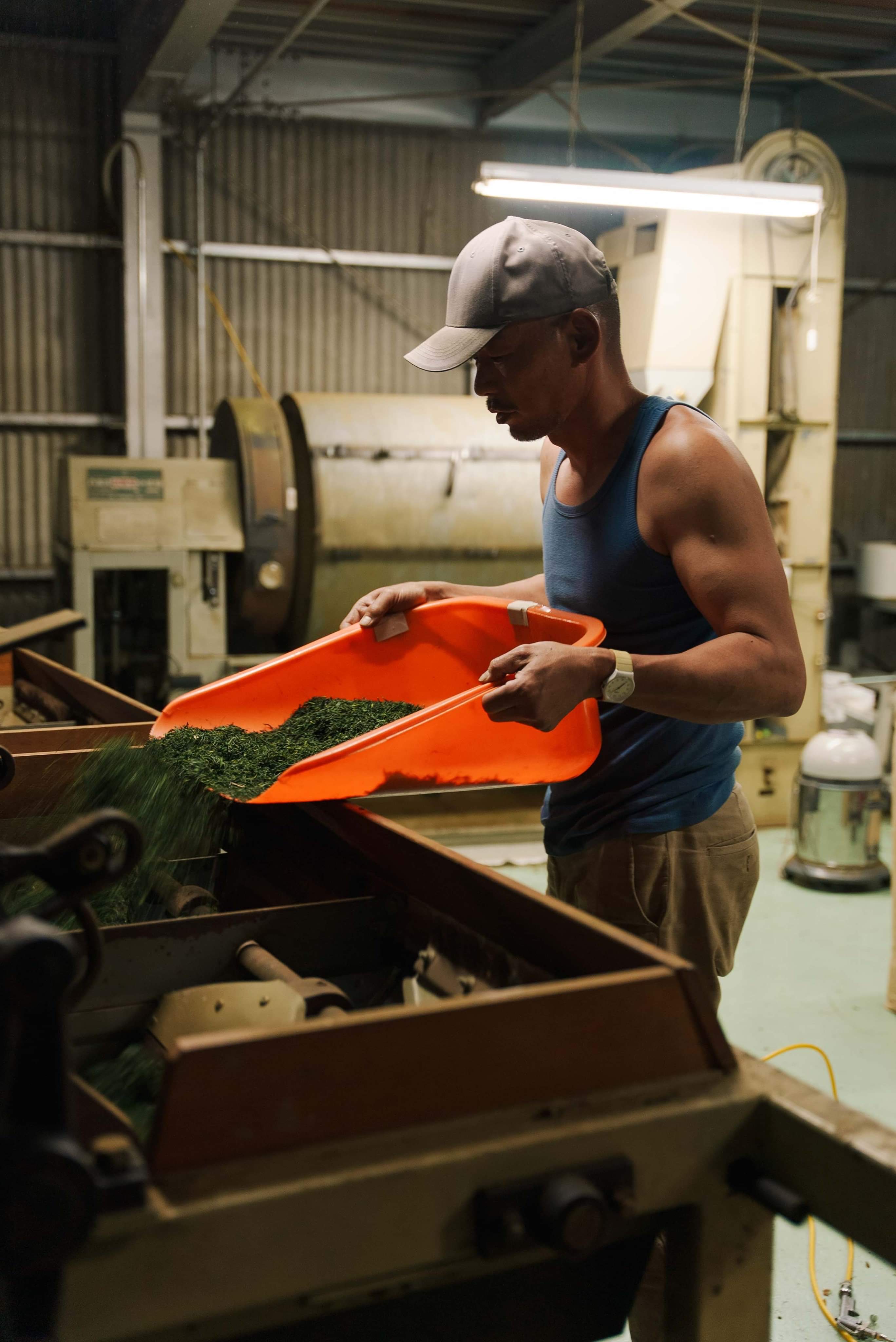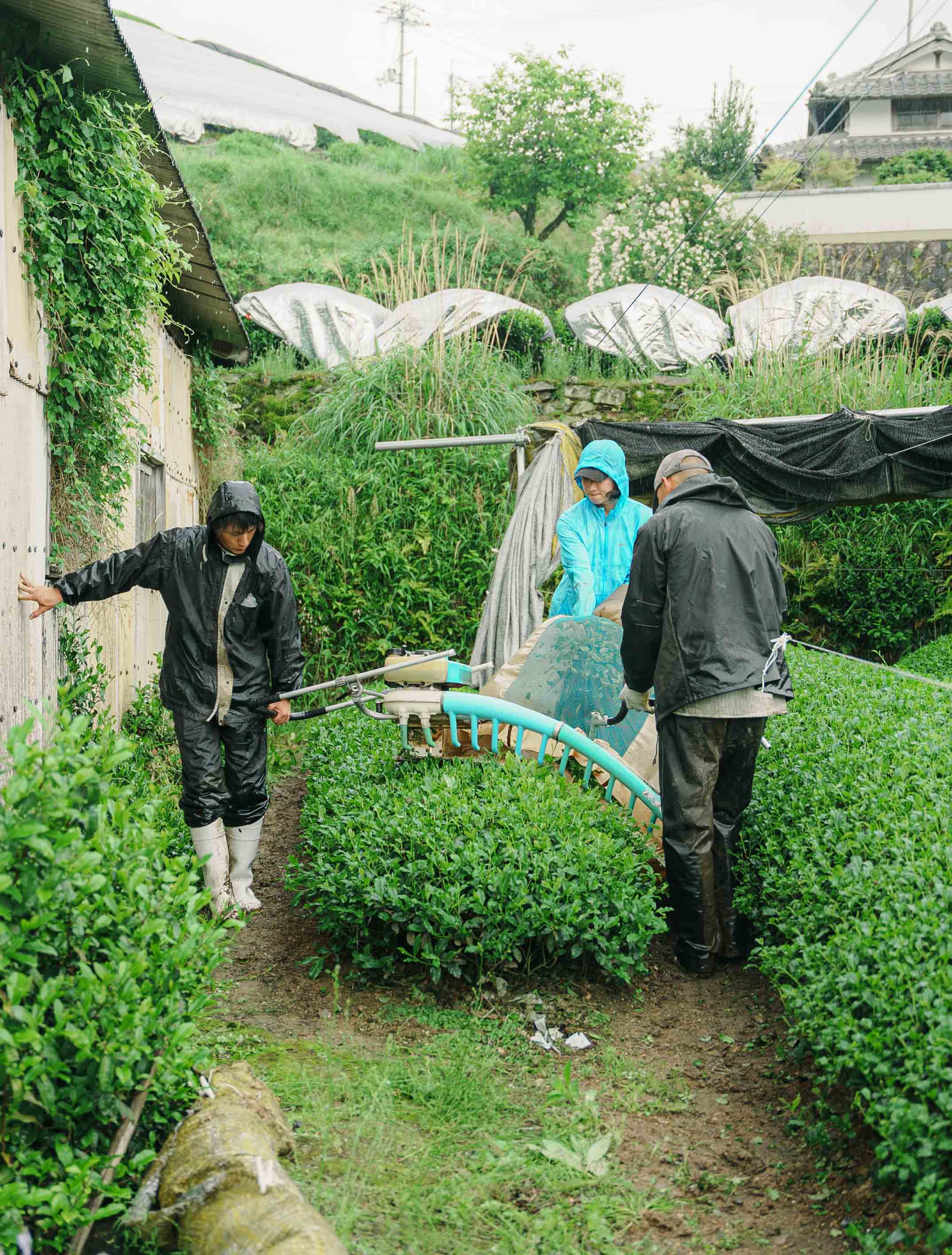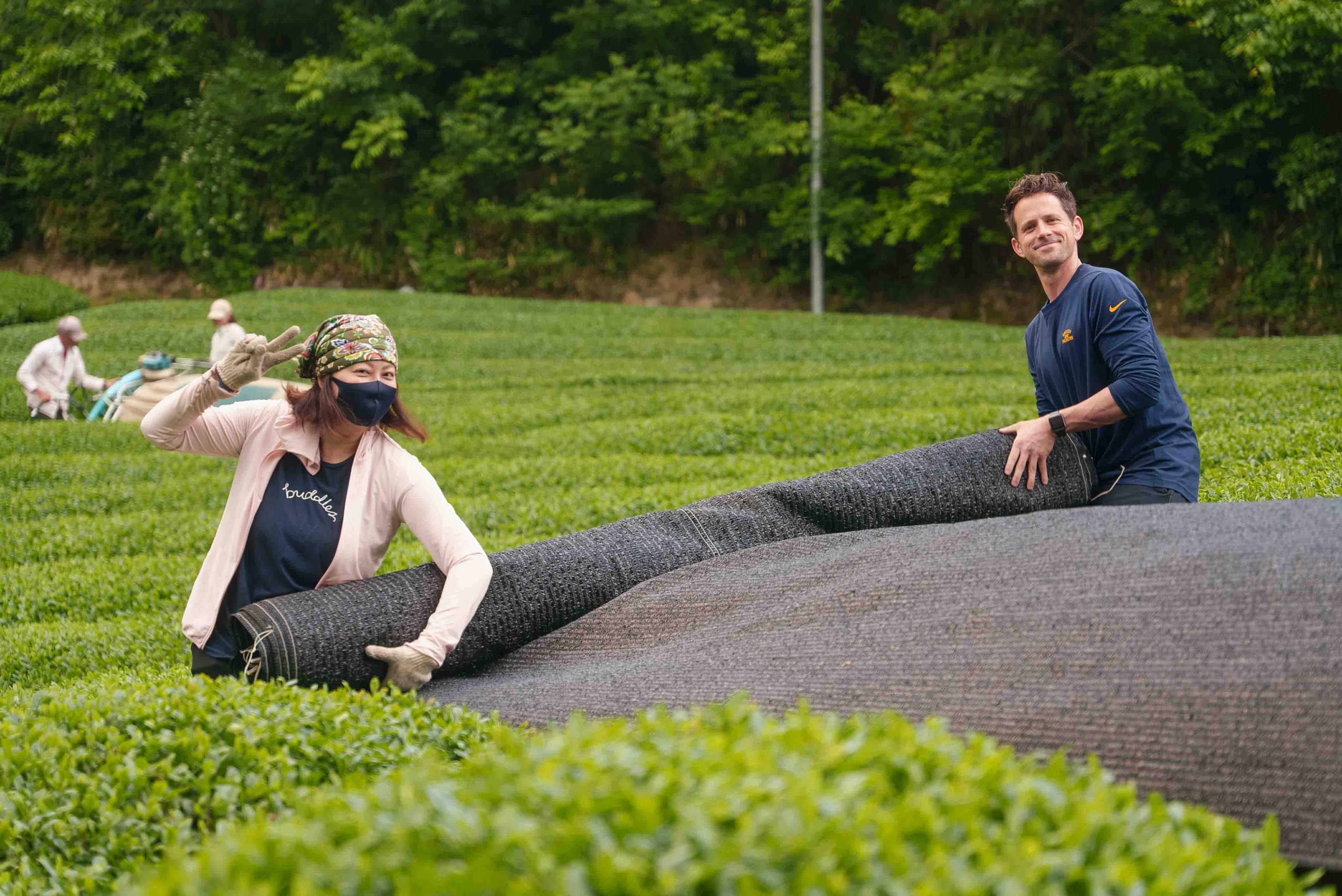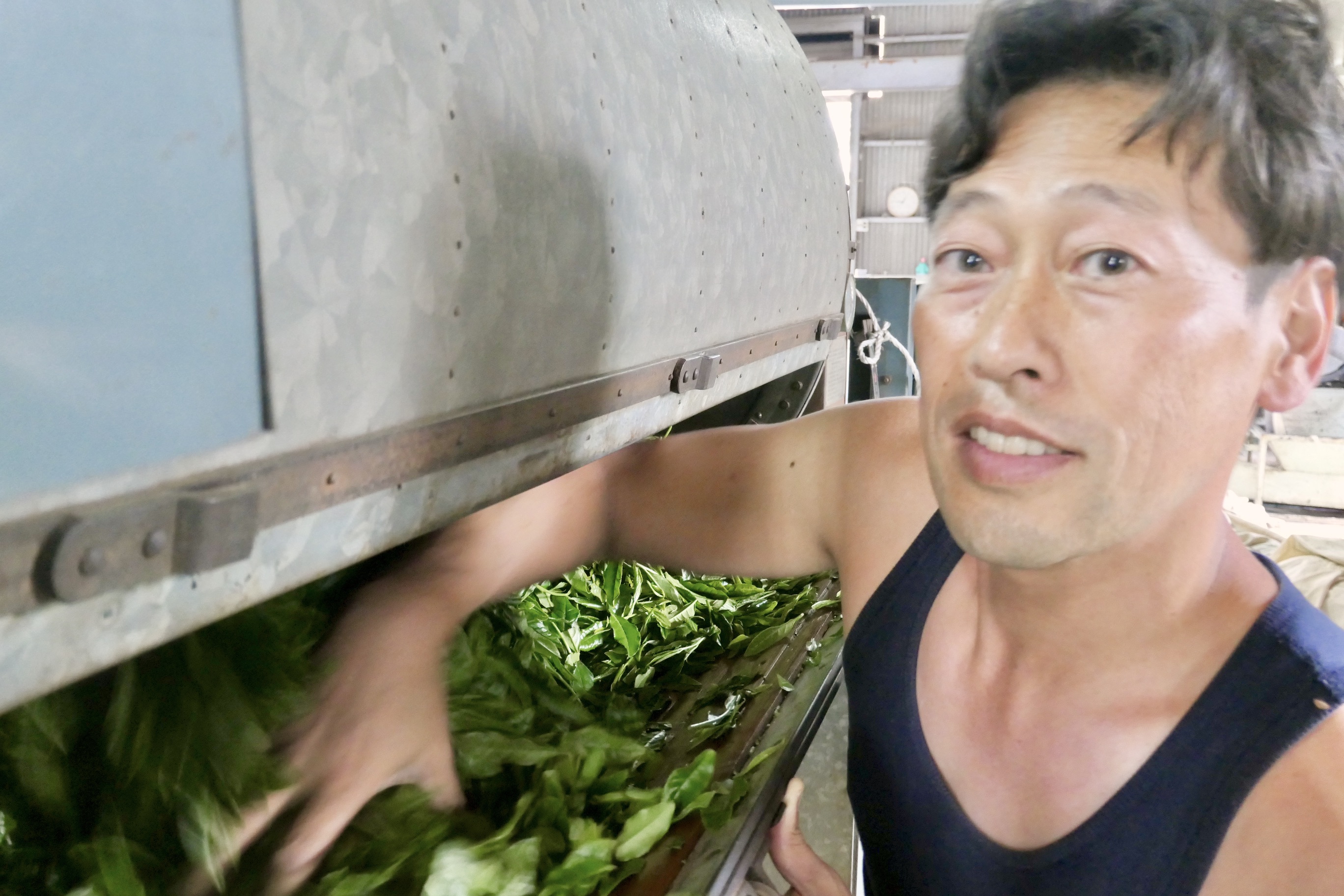Hey everyone, it’s Marie from Obubu, it’s been a while!
Japan has been very hot recently! I hope you are all doing well and enjoying your time wherever you are on earth!
It’s the middle of July this week, and the second tea harvest is almost over…! Time flies by…this year too, since spring, all the Obubu staff (and of course mainly our president and lead farmer Akky-san) have worked very hard to bring you delicious tea!
Of course, we still have the autumn harvest to go, but we have gathered a lot of good photos this season again, so today I would like to share some of them with you and show you our Spring and Summer tea adventures!
This year, the staff who usually work in the office (Hiro-san, Kayo-san, Moe-chan, George and I) have been particularly busy taking care of our new Gyokuro tea field that we manage from July 2020.
By the way, this is the tea field we were looking name ideas for. And we received many nice suggestions from our Tea Club members! After much discussion with the staff, we chose two of the Tea Club Members submissions and combined them both to name it “Blue Forest Tea Garden” (“Aoi Mori no Chabatake” in Japanese) as this beautiful garden grows deep in the mountains of Wazuka, covered by a gorgeous, calm forest.
Now, let’s go back a little earlier in the year!
I said it would be a recap from spring, but we actually started working and preparing the field in February! The first step was to check the state of the black covers and the shelves above the tea garden and doing some repairs for spring.
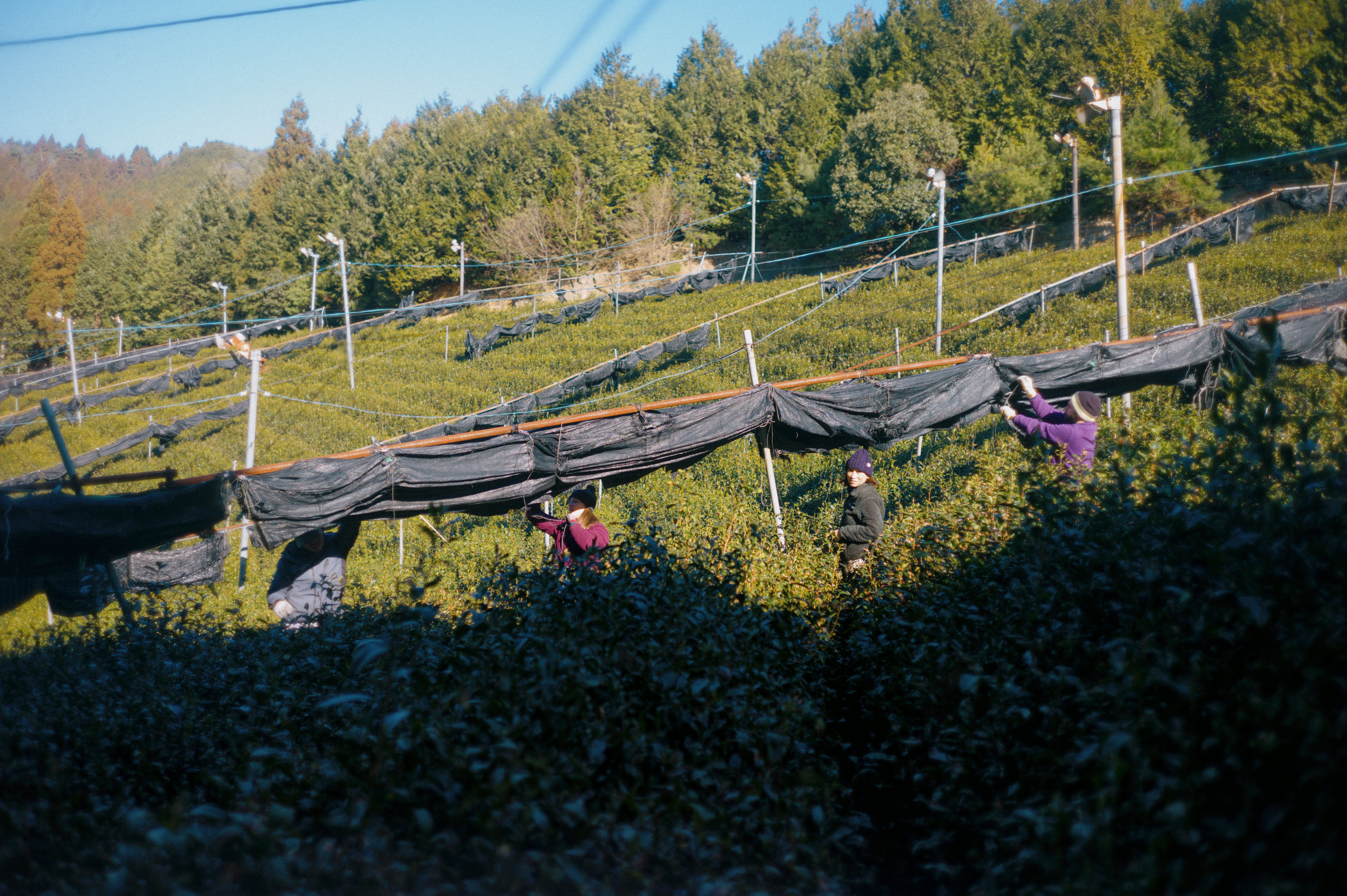
(We can still spot some snow remaining from the day before. It was so cold that day!)
(Taking a break into the beautiful “komorebi” (sunlight filtering down through the nets) enjoying the silence of the sleeping forest.)
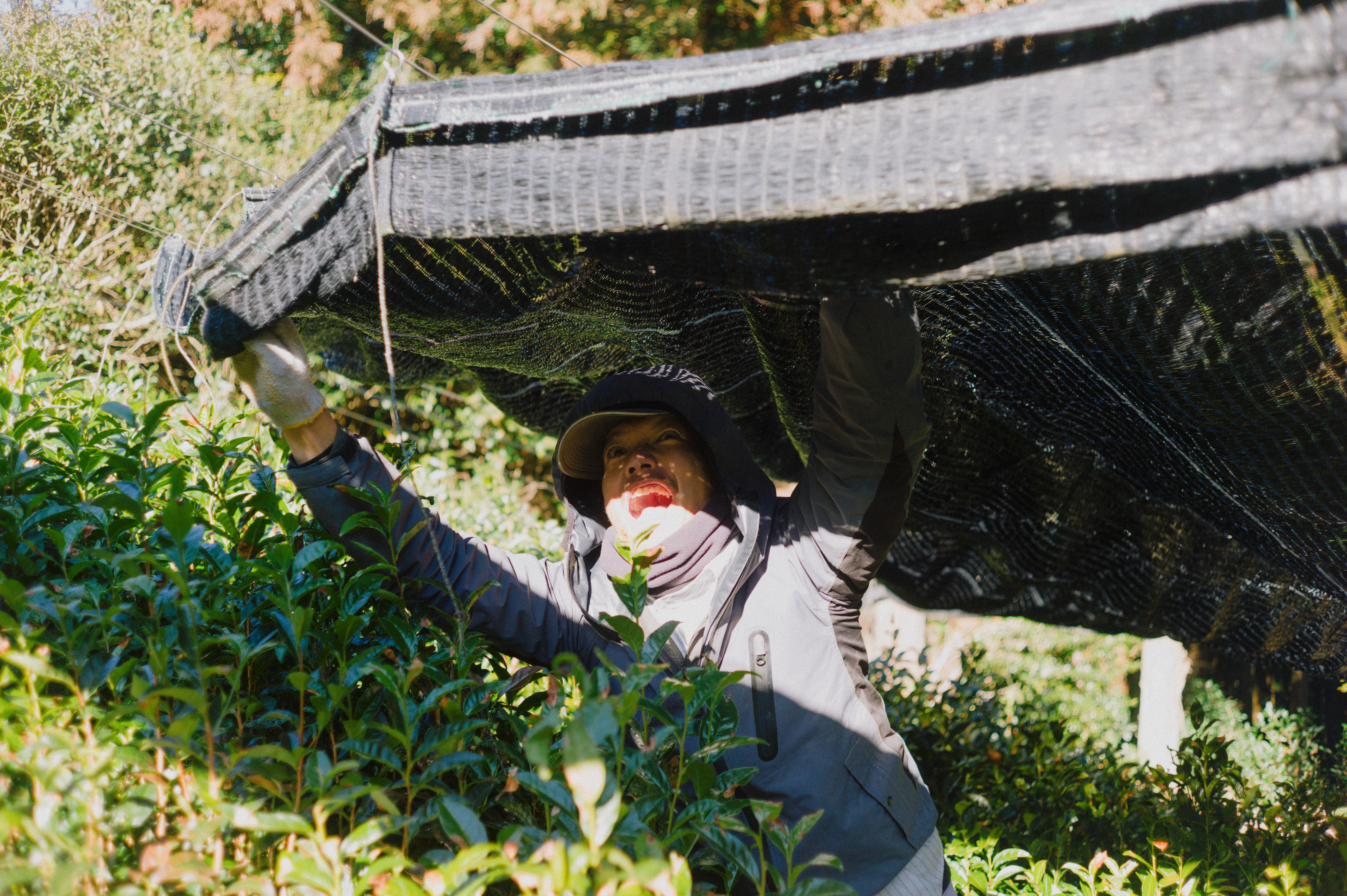
In the middle of March, we harvested some tea for the first time since we started caring for this field: the Kyobancha that we sent to our Tea Club members!
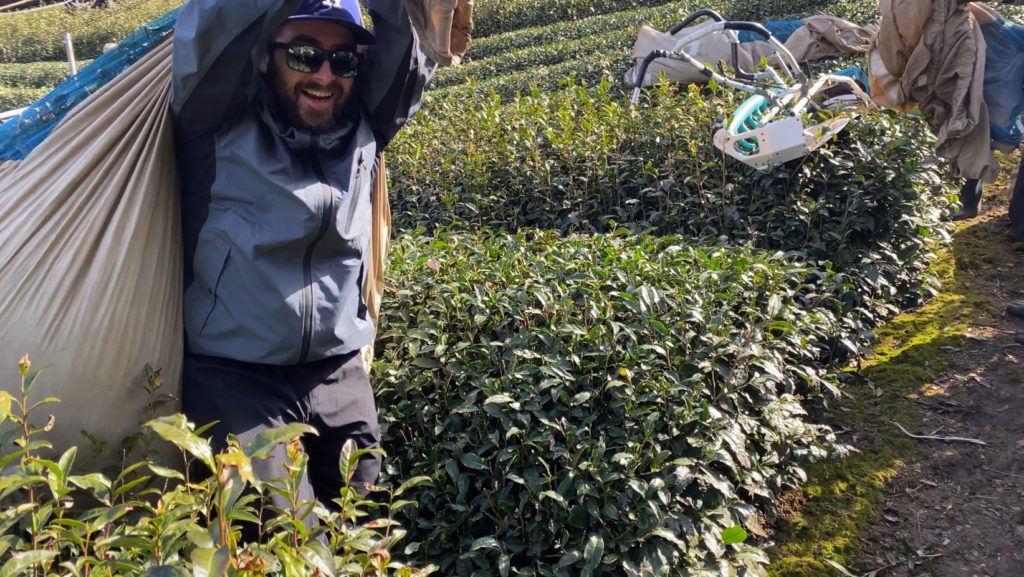
The tea field was left to its own devices for over a year, so the tea bushes were very (very) tall and the harvest so hard, especially where the slope was so steep (and probably also because I am only 157cm high…! #gardengnome).
During the harvest, you could hear: “Wait wait wait I can’t go any further! Daaarn the machine is so heavy! Arrrgh wait, the branches are too long and it doesn’t enter the bag! Pull up! Pull up!!! Wait let’s take a break I’m dying!”
(Kayo-san and George were harvesting at a super high speed though)
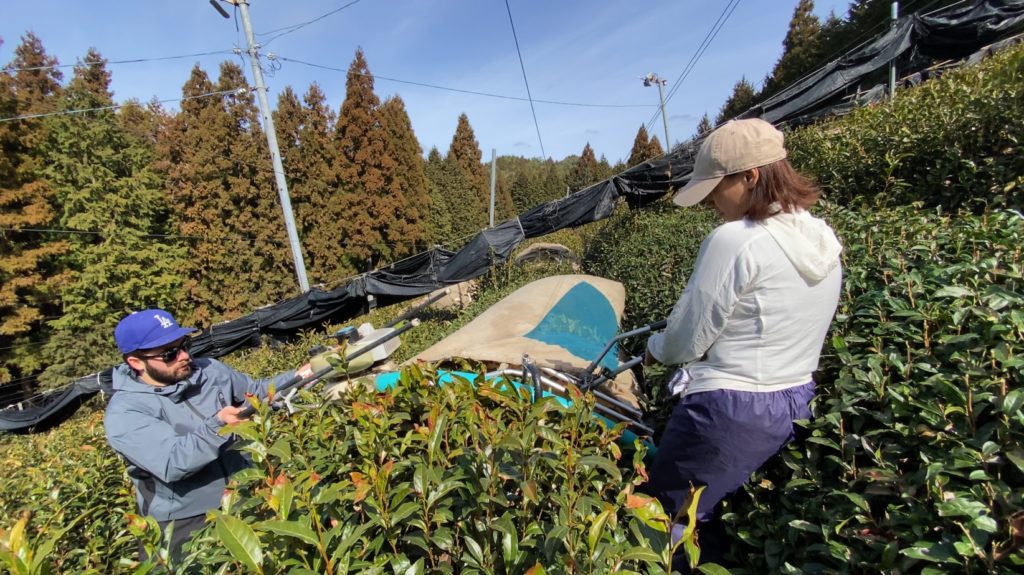
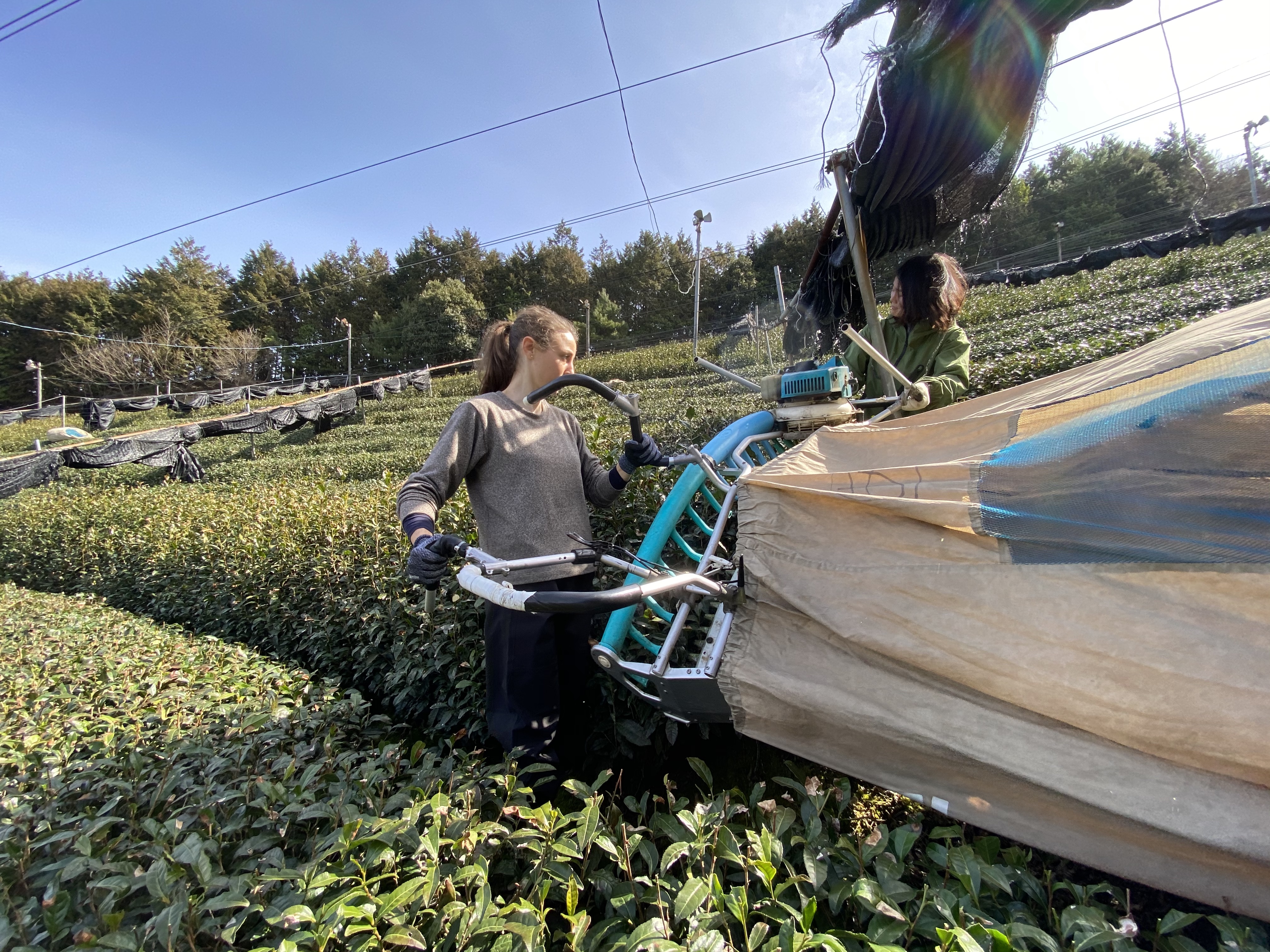
The loser team close to death and to become fertilizer… 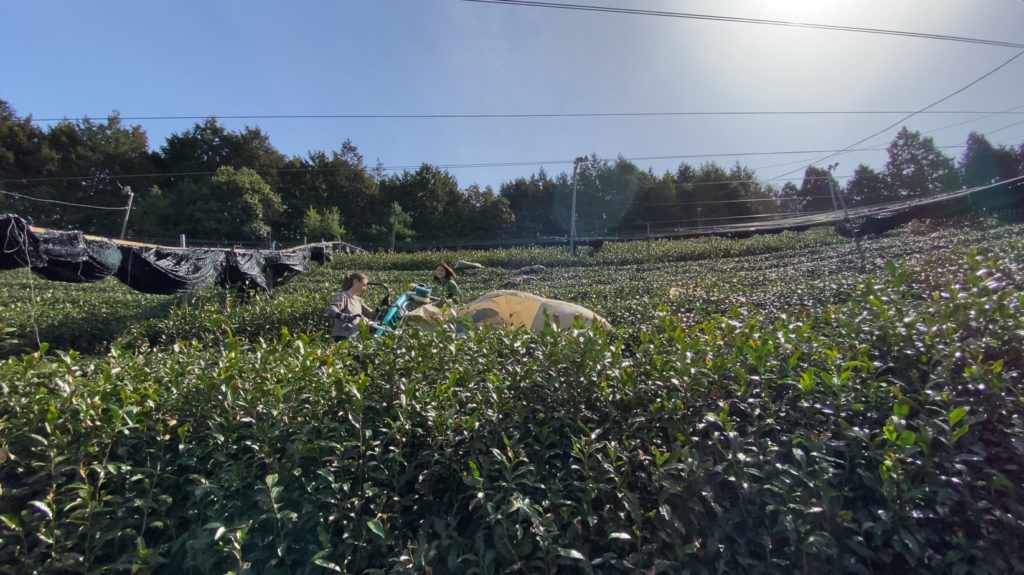
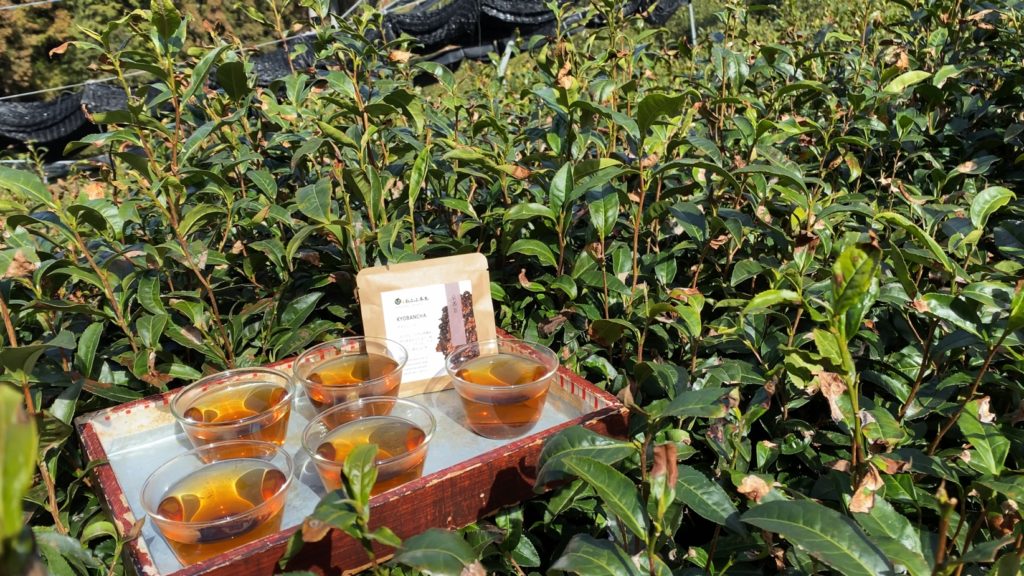
After that, we got right down to the business of levelling! This very important process involves a very light trimming to remove the old leaves that have stood up above the bushes’ surface so that they do not get into the harvest of the first flush (ichibancha) in Spring.
However, if you trim too deeply, you will lose the first little tea shoots that have started to appear, so you must have to adjust the height very carefully as you go!
Another surprisingly difficult process…!
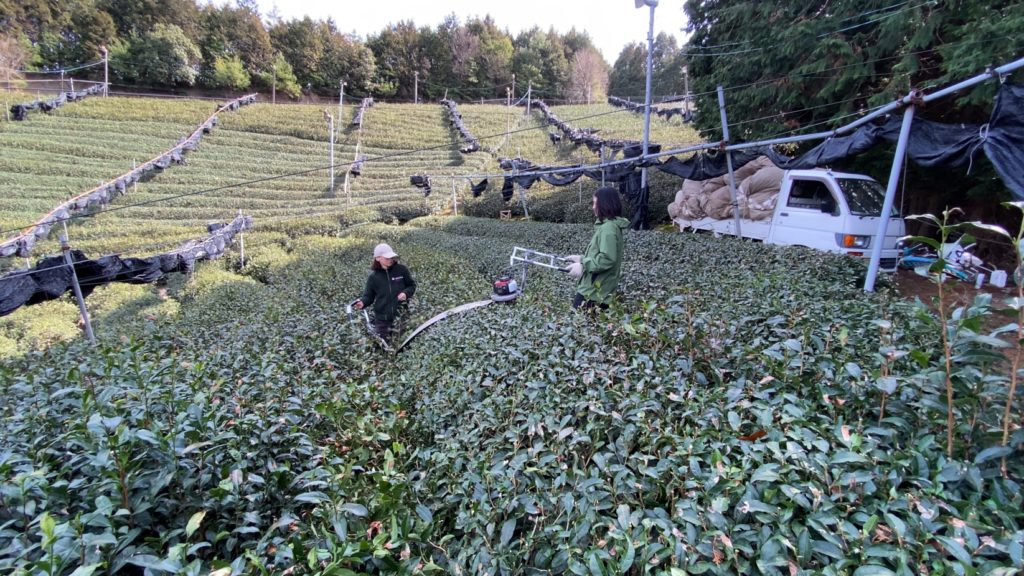
(Now let’s wait and pray that the tea buds will grow healthy!)
And spring has come…!
From this point on, with the help of our intern Miyu-chan and many volunteers, we went again to our field many times to close the nets above the bushes as the tea buds were starting to grow bigger.
And after three weeks of shading, all the staff, under Hiro-san’s guidance, tried their hand at harvesting and making Gyokuro tea for the first time in their lives!
(Very important reminder to become the best tea maker: imitating Akky-san’s tea making method until the end. Well you must be laughing but it actually has a tremendous effect on the taste of the tea at the end! I am not kidding!)
Anyway! Even though Gyokuro making can be stressful, I think everyone really enjoyed this experience and is proud to be able to bring this “Natural Gyokuro” to you!
I hope you will try it and like it!
Now, let’s talk about the next farming process… (Wait what? You haven’t finished yet?!) The deep cut!! (super satisfying process, trust me).
Our muscles ached a lot from this too!
This work is mainly done after the first tea harvest. This step is very important as it keeps the tea bushes healthy and prepare them for the next harvests.
Trimming also allows to keep the bushes at an easy to access height! It is good for the renewal of the branches, and to produce better-quality buds! A deep trimming also helps to get rid of eventual diseases.
There are 4 main kinds of trimming in Japan depending to the depth of the cut: light trimming, deep trimming, deep cut and mowing.
The deep cut (“Chuu-gari” in Japanese, literally “cutting the bush in the middle”) is usually done once every 5 years (of course it depends on the farmer and the state of the field). This is the cut we choose to do this year in our Gyokuro field to lower the surface of the tea plants and boost the bushes to produce healthier branches.
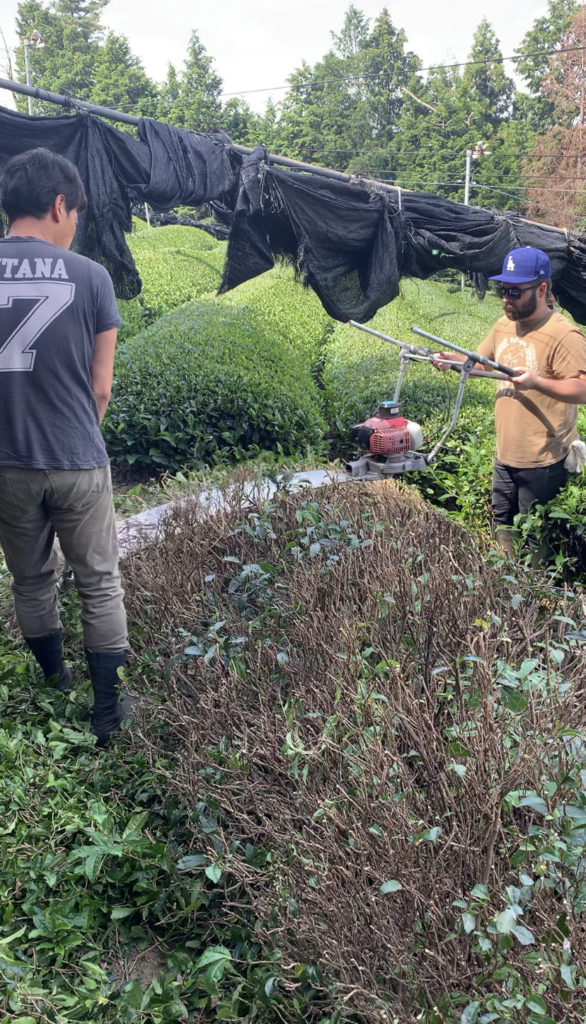
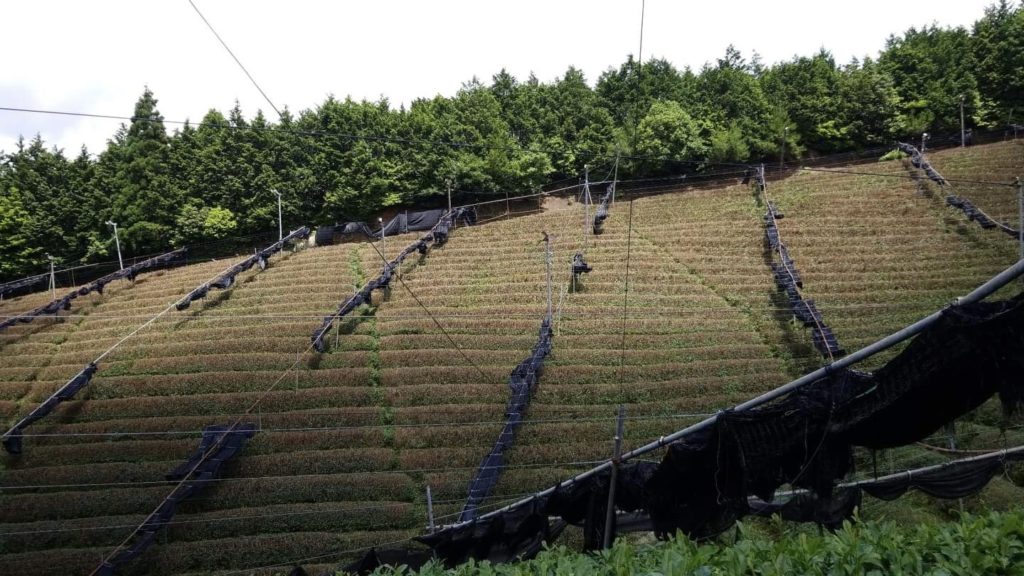
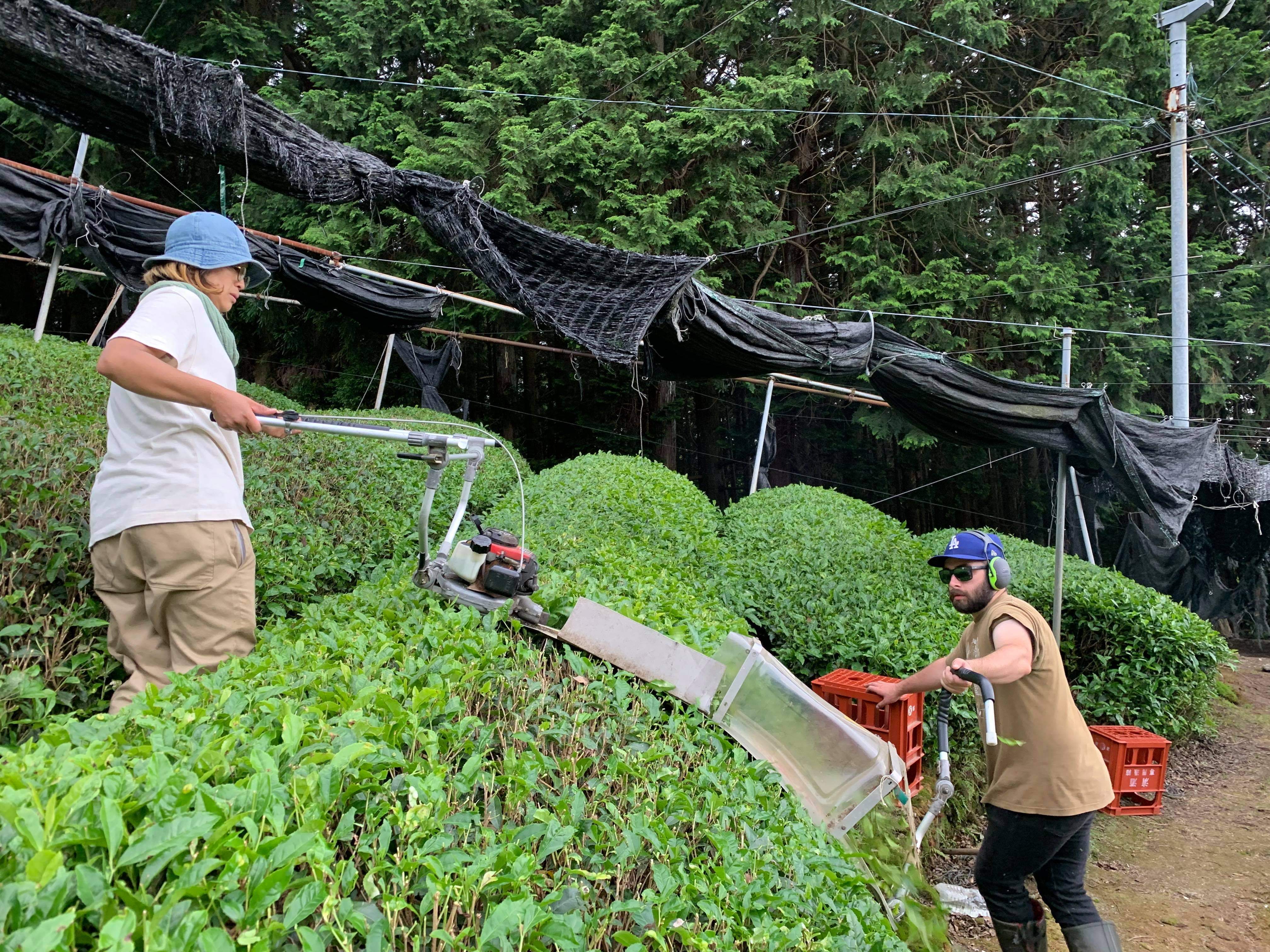
Assistant Akune-chan and TJ George doing a light hair-cut on our Sayama-Kaori bushes
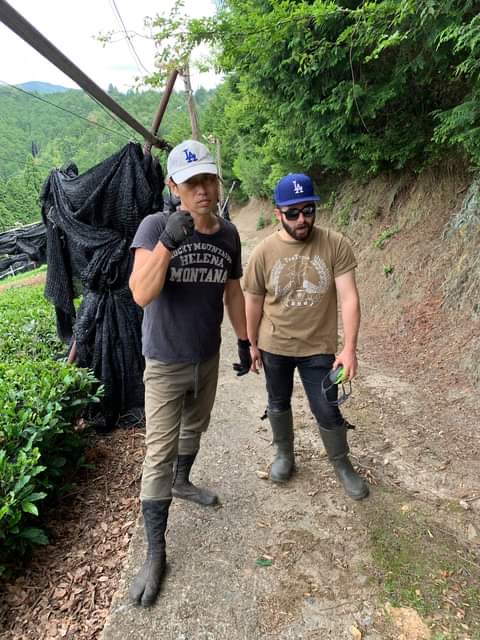
(Summer body prep is done!)
And voilà! The work in our Gyokuro field is finished until next year!
While Obubu’s team was working at the Blue Forest Tea Garden, Akky-san and his assistant Atsushi-san, along with volunteers, were harvesting a lot of tea in our other tea fields.
The factory was producing tea almost every night, everybody helping Akky-san making tea while having a good time together.
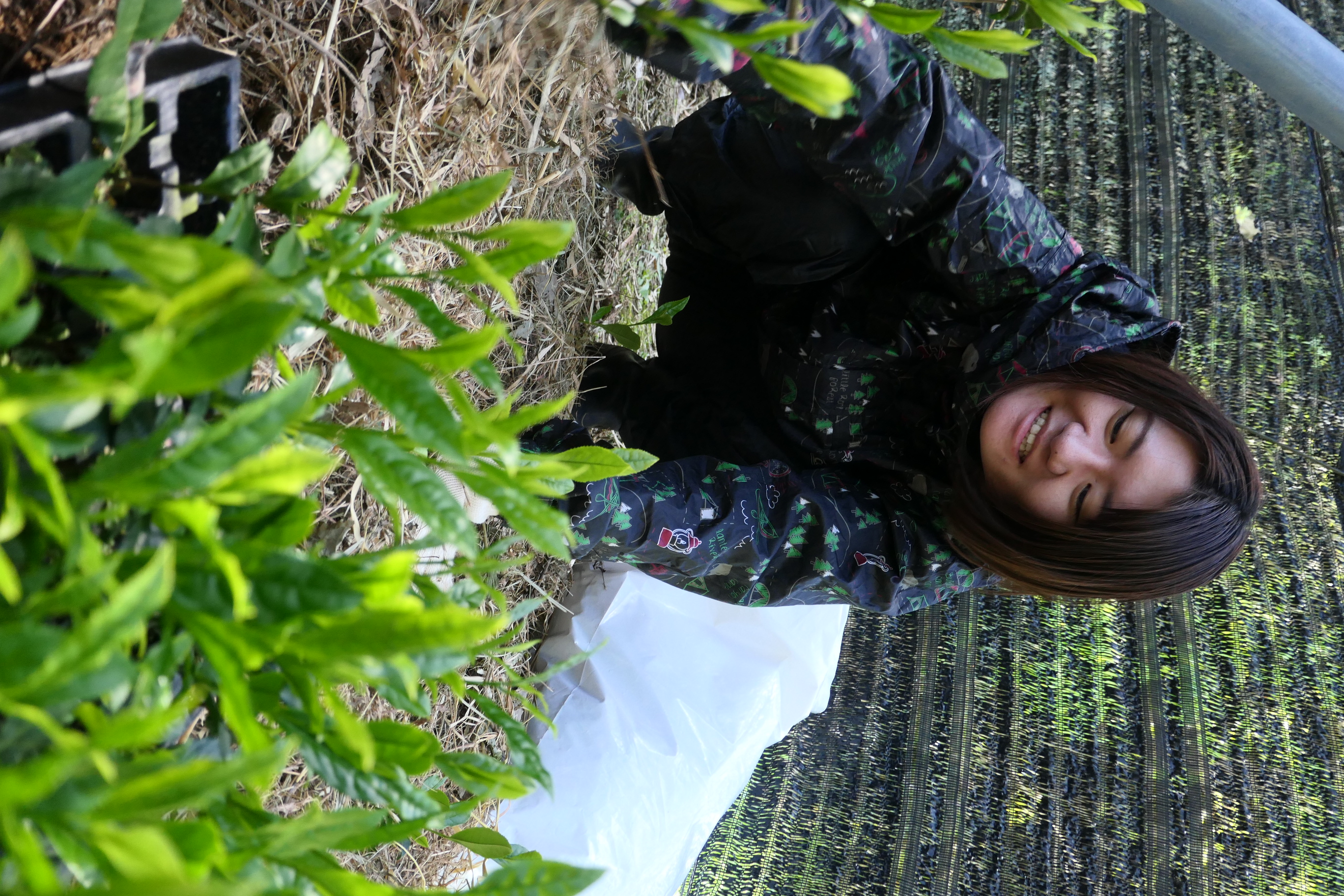
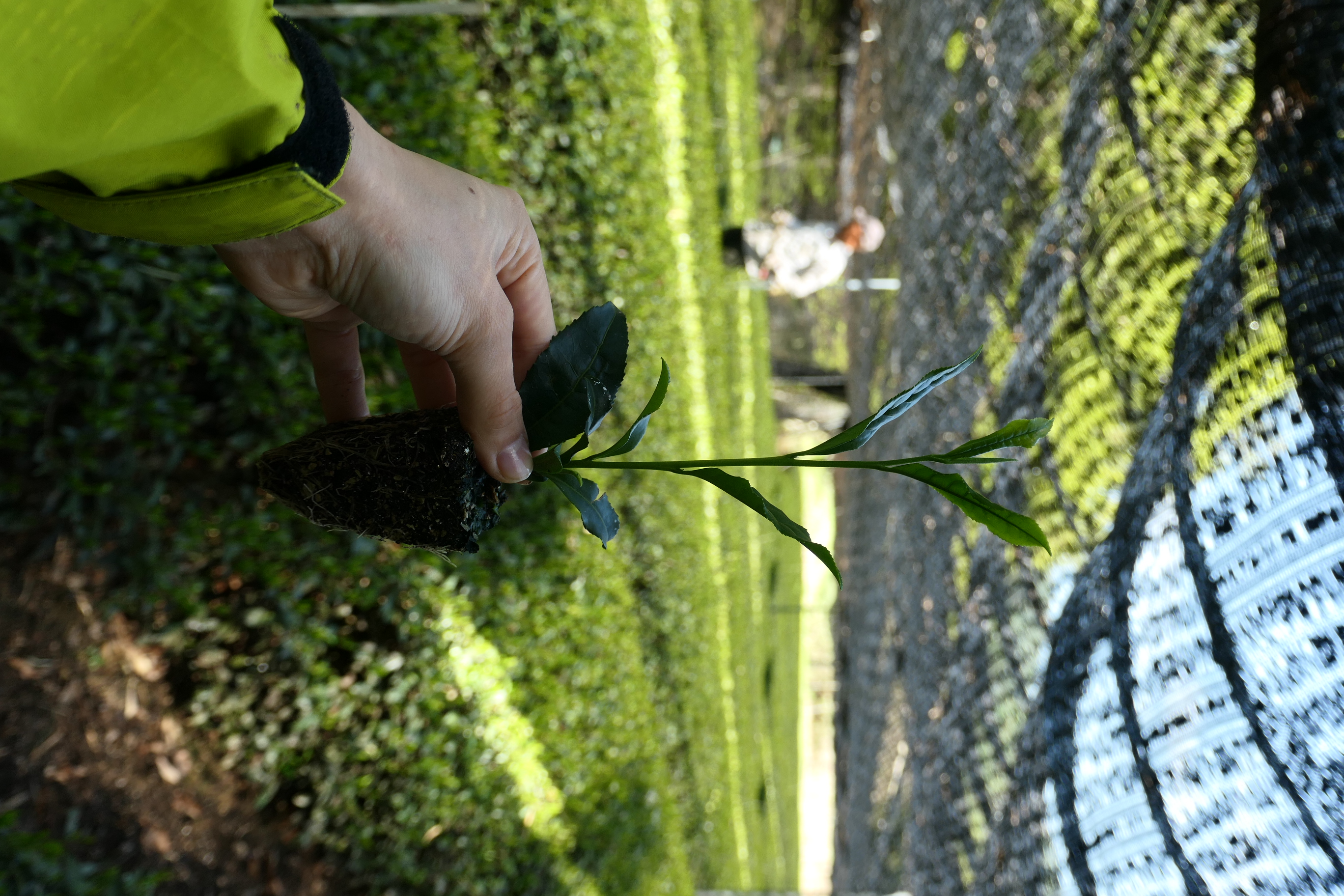
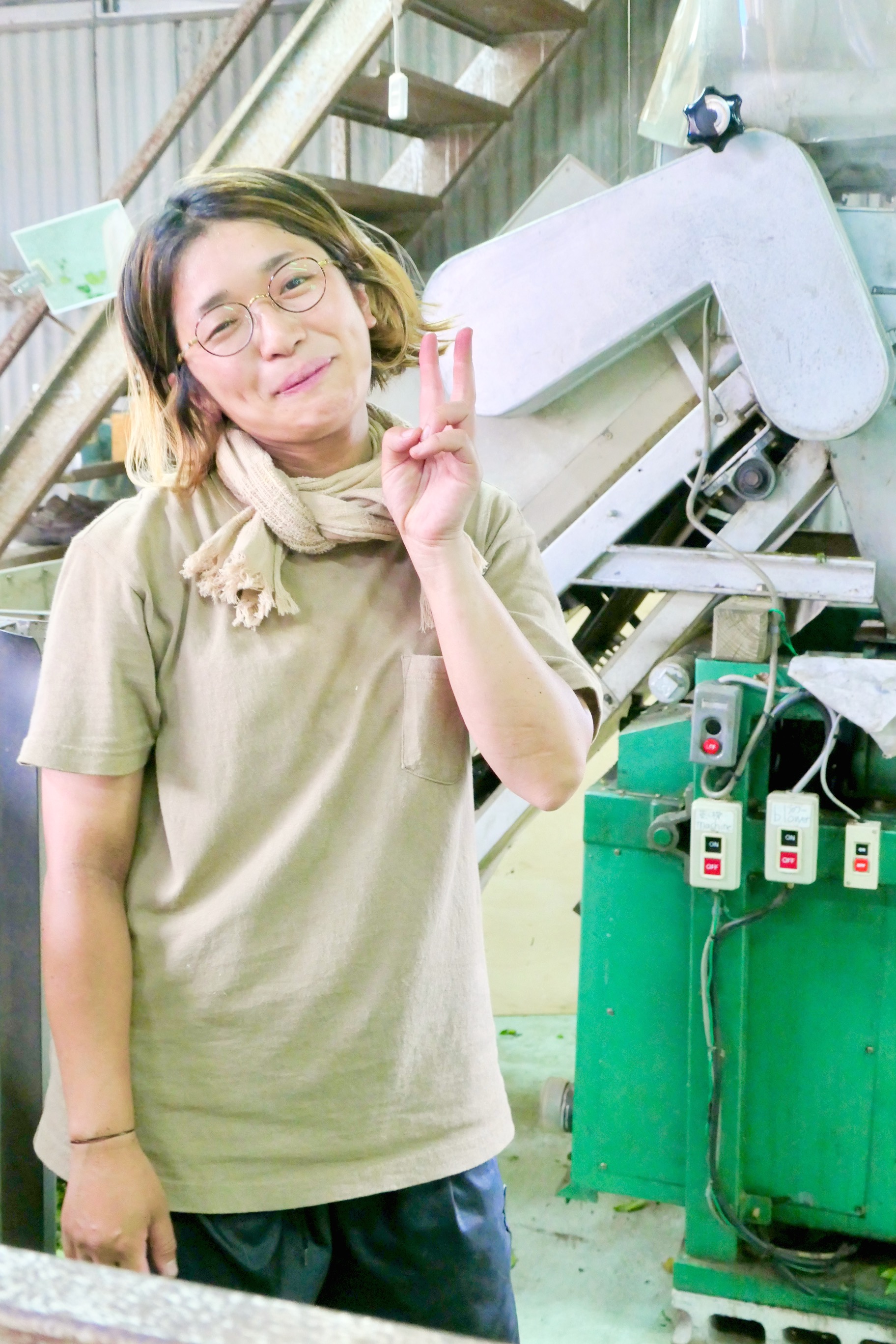
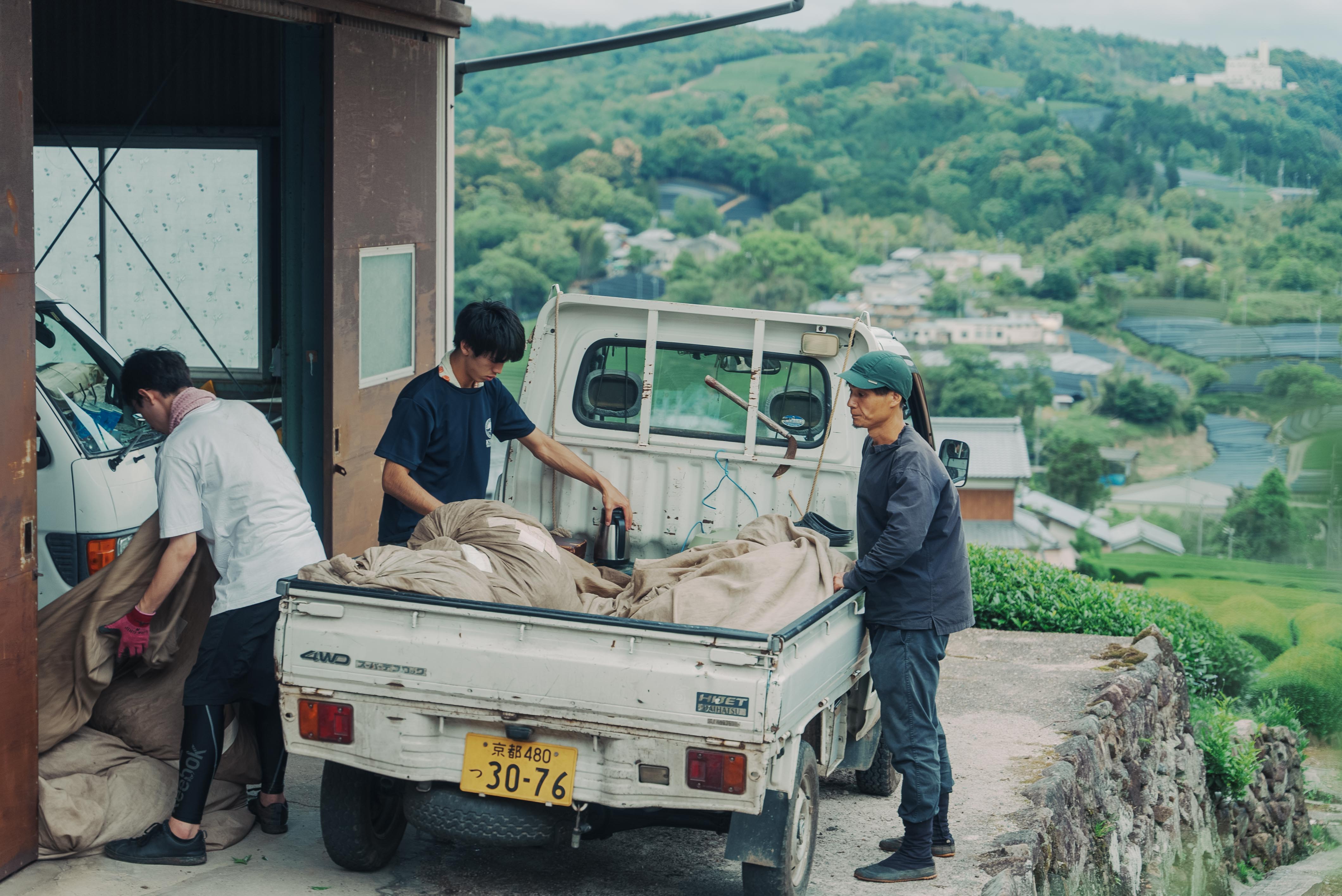
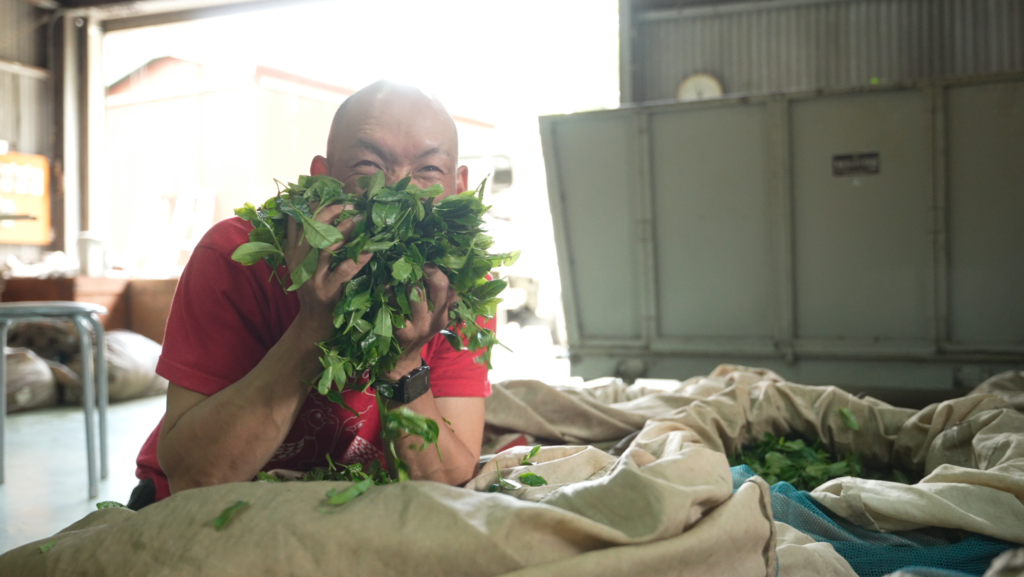
The Tea Fairy
In the summer, Tencha harvest, weeding parties, and fertilizing are the main works in the fields.
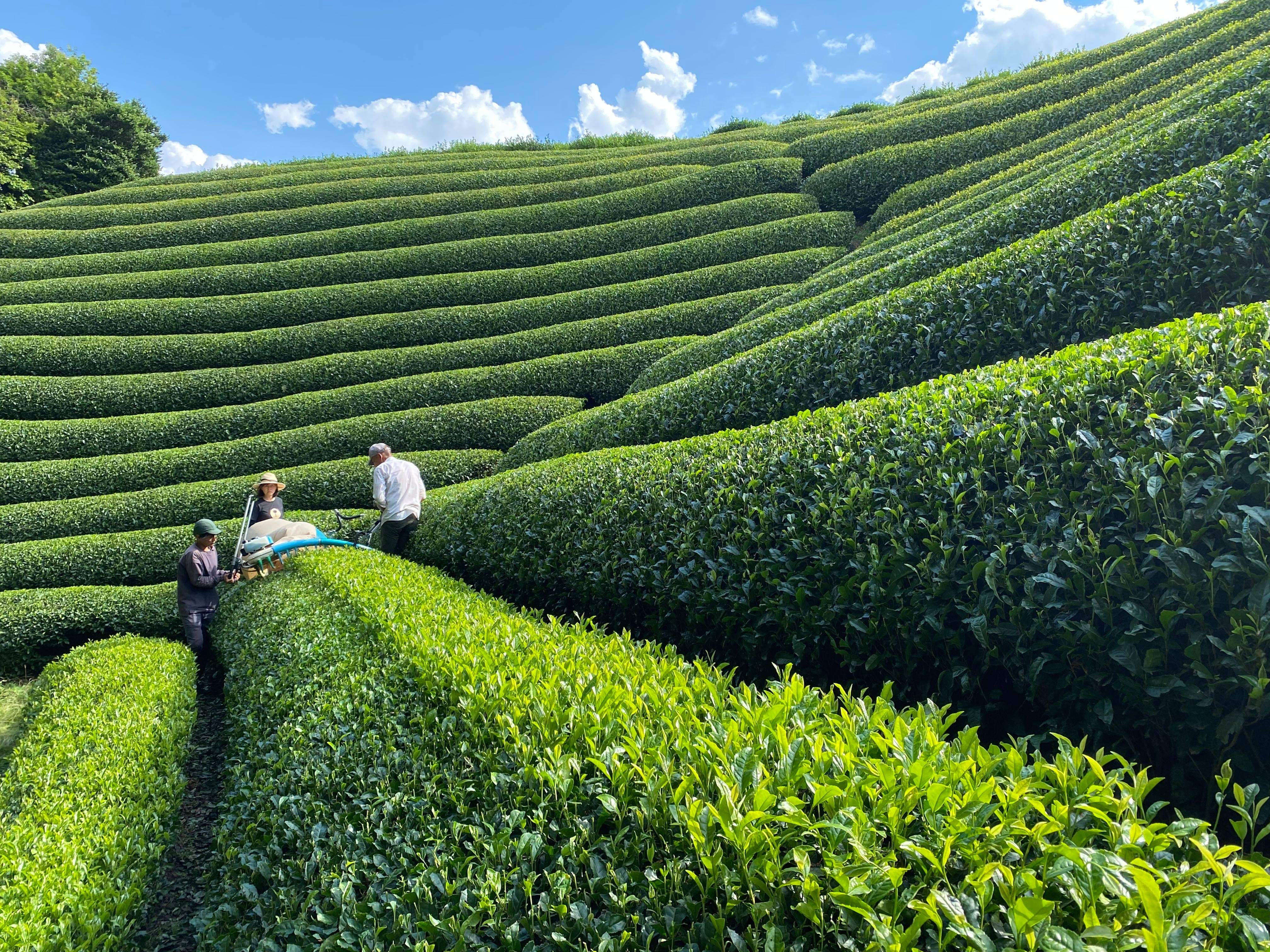
(The midsummer tea fields are hot but sooo beautiful too!)
(Of course, tea making involves a lot of tea tasting too!)
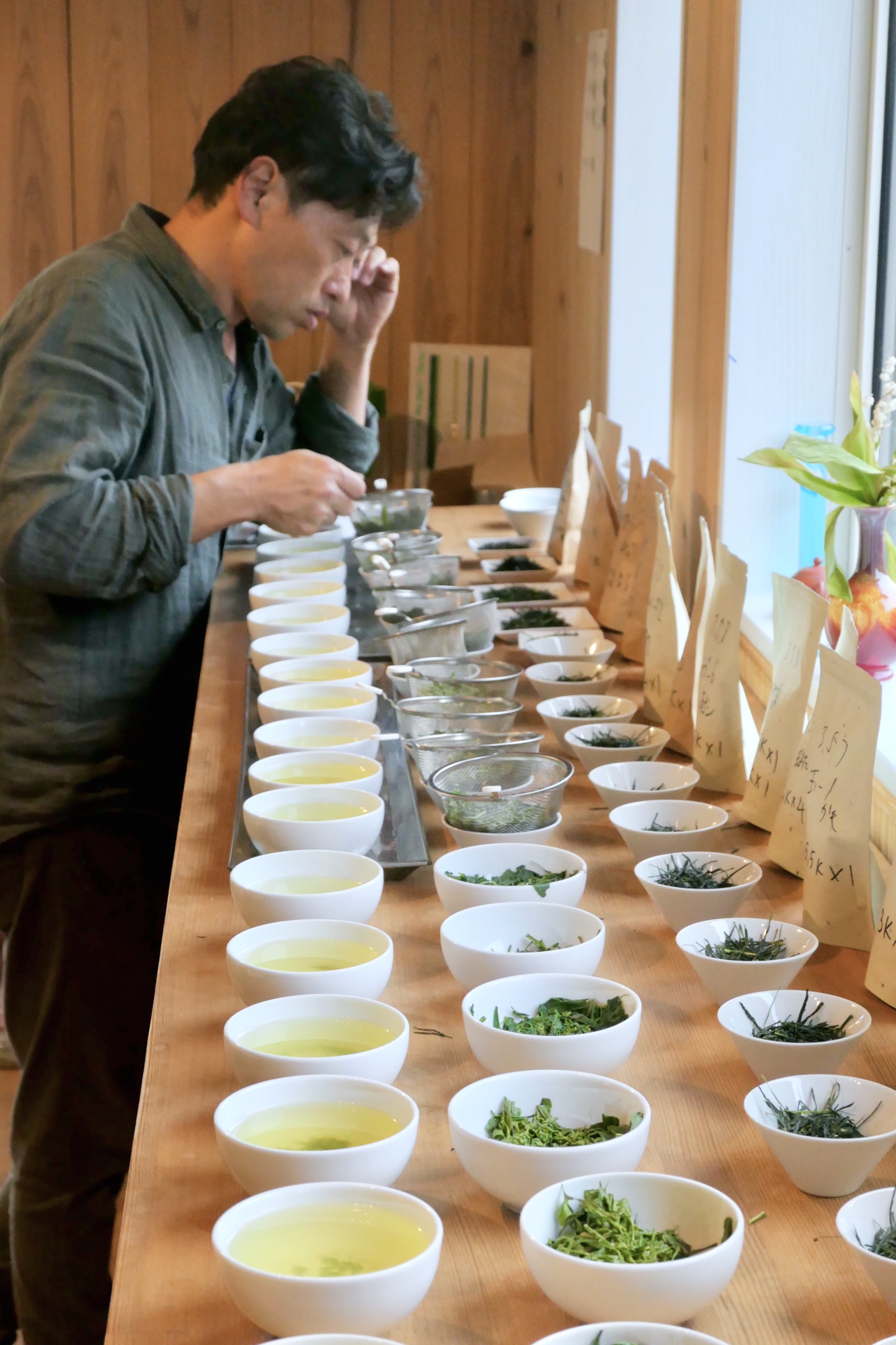
To recap my feelings about this season, I would say that I am just truly grateful.
For the very first time in my life, I had the precious opportunity to make tea myself, from harvesting in the fields to making tea at the factory. This amazing adventure that Obubu gave me the chance to experience made me realize again how hard tea farmers like Akky-san work every day to bring us such delicious teas, how passionate and serious they are about tea, and how we should cherish all of these precious and delicate teas we get from their labor.
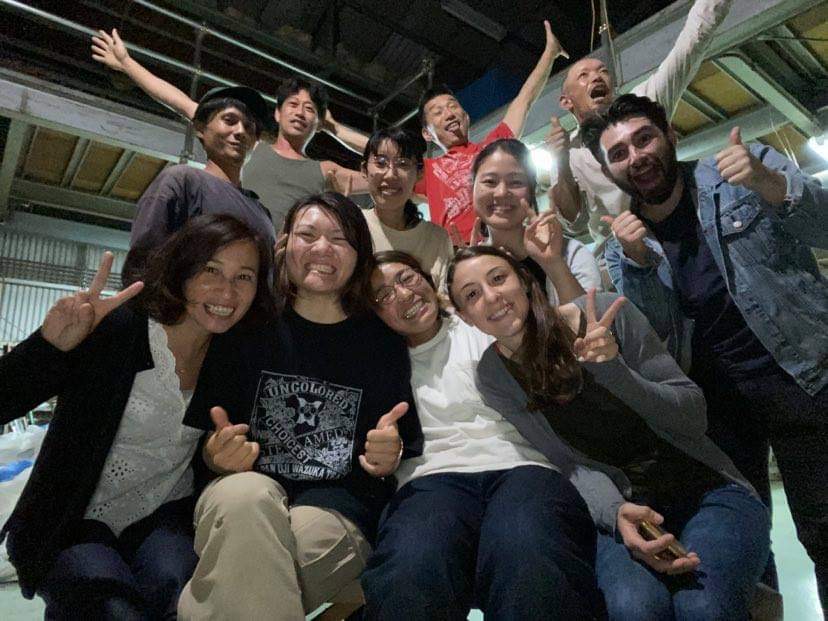
I hope you enjoyed this little recap of our 2021 Spring & Summer tea journey and I am really looking forward to sharing even more of our tea adventures with you all, whether through the teas we send to you or directly with us in the tea fields!!
Have a beautiful day and take care!

